File: 1512605614367.jpg (216.5 KB, 383x600, 383:600, 66167939_p0_master1200.jpg) ImgOps iqdb

Here's some useful links to get you started.
-https://docs.google.com/document/d/1pKgBm8Aa58mjB1hYhbK-VOPZsRBTXBuPBzw8Xikm2ss/pub?embedded=true (A basic walkthrough of what to do first and what to expect)
-http://realkana.com/ (tool to learn the kana)
-http://www.guidetojapanese.org/learn/grammar (grammar guide)
-http://pastebin.com/kXqhRbWi (setting up Anki)
-http://jisho.org/ (Japanese-English dictionary)
-http://dictionary.goo.ne.jp/ - (Actual Japanese dictionary for rare words and alternate definitions)
-https://addons.mozilla.org/en-US/firefox/addon/rikaichan/ (Popup dictionary definitions when you hover over a word, Chrome version is called Rikaikun)
http://rikaisama.sourceforge.net/ (alternative to rikaichan)
Last thread: >>19661
みんなさん、がんばって!
kim tae's grammar comes with vocabulary, use it to memorize the most common kanjis while learning the grammatical part
>>25257
I disagree with >>25258 on this. Grammar doesn't make any sense until you have a basic feeling of how the language works. Learn to Anki and start grinding the 2kCore, all the info is at the OP. You might want to fetch a Kanji deck as well and memorize the 100 most common ones or so. Once you begin to notice patterns in those Core sentences, then you can take a look at grammar guides. At least that's how it worked with me. The most important part though is do studying every day.
Good luck.
Thanks for the thread reboot wiz,shit happened in life that threw me off the course i was taking months ago and now im on the other side of the country.
Time to start from fresh and take things seriously (๑•ㅂ•)
Whats a good number, or at least the number you guys start with?
I don't think I'm doing it in the most conventional way, either. I've got a clipboard and some paper and I write out the kanji, the hiragana, and the definition for every card, every time it comes up. It's only been six days and I've got seven notebook pages completely full front and back. It does help me remember, though. I'm pretty confident in my ability to distinguish 1-10, 1-10 (things), 1-10 days, as well as the days of the week in only six days, so that's nice. I wasn't expecting so much progress.
You mean a good number of cards per day? Go with the standard 20 and if that gets too comfortable do 30 cards. The most important in the beginning part is to build a habit of daily study, that's what is going to carry you throughout the years it takes to proficiency.
>more that gets piles on, the more I get them confused
That's expected. Keep grinding it and it will get easier.
As the other anon said 20 cards is good to start with and then adjust till you're comfortable. Less than ~15 may be too little but again it's really up to you. If you're writing them out you should be using correct stroke order, it really makes building into harder ones easier and kanji in general easier to understand visually.
There are times where you get confused but usually they lead to clarification, go back and try to look at stuff that has confused you, sometimes even only a day after looking over it again will make more sense.
Sorry I wasn't very clear, but do you mean 20 new cards a day?
What I meant was how many new cards a day did you guys do to start?
>>25263
Maybe it's just my experience but I don't recommend learning how to write in japanese (at least not in the beginning) with anki.
The amount of work and time spent doing that will be an absolute hell down the road,I did the same thing for 2 months and I ended up being completely sick of it after that time.
My recommendation is that you learn vocab + grammar first…for like a year,when you're comfortable reading simple things you start writing and listening japanese.
That's my recommendation though,maybe you're stronger than me,but almost everyone I've talked to who learn writing using anki end up being tired of it.
I (second post) have already been pretty comfortably reading manga and some VN's for a while now. I'd agree it's too much to take on all at once and will lead to burnout though.
Unfortunately, there's really not much I can do about that. I'm working with something of a handicap, and if I want to see the same kind of progress most other people see, I have to put in twice the work.
It really helps me remember to write everything down as well as see and say it.
Yes, I mean 20. Once the language makes more sense and it gets easier to memorize, raise it to 30 or so. It's not set in stone though, you can adjust to your needs and expectations as you go along.
I can't stress this enough: The most important part for the first 3 months is to build a habit of study. Set a schedule and don't dare skip it.
File: 1512738885231.png (271.07 KB, 581x443, 581:443, 1507320438509.png) ImgOps iqdb
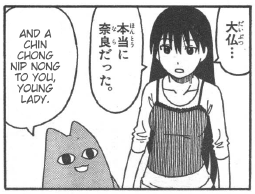
We're all gonna make it, r-right guys?
File: 1512749482396-0.png (1.69 MB, 1920x1080, 16:9, vlcsnap-03417.png) ImgOps iqdb

Now that the lead up is there, I'm seriously considering starting learning Japanese instead of Chinese. I have quite a baggage of characters under my belt, and considering that onyomi readings are basically japanified chinese character readings, that's there to stay. I am aware of all future predicaments, most notably difficult grammar, the SOV sentence structure, formal and informal speech, multiple kanji readings, but would still like to hear some advice on whether or not I should stick with chinese or start learning japanese, and if it's the latter, It'd be nice to hear some stories from wizzies who happened to be in exact same situation as mine (transition from chinese to japanese language)
Counting the outside-class study they are required to do, it's like 4K hours.
>At FSI, it requires most adults at least five class hours a day for five days a week, plus three or more additional hours a day of independent study.
http://www.govtilr.org/Publications/TESOL03ReadingFull.htm
I'll be honest, wiz. 2 months is pretty much nothing in terms of language learning. That 3 or so months mark is the hardest because very little makes sense and your brain is contantly trying to quit on you. The same happened to me. In fact take a look at >>22127. You see the 90 days mark there where I almost quit. Somehow I managed to continue and things only improved after that, except the frustrating part, that still there.
I guarantee you're not quitting because of the language you chose, it's because you're frustrated and beginning to justify it
>impossible to discern everything the chinese say, not even them can do that,
No, they can, they pretty much can. It's just that you can't and you won't for a good while before things start coming together.
The exact same thing will happen with Japanese. The first couple of months things go fine because there's a bunch of easy things to pick up and there's the novelty of the whole thing. Then enters a new phase where you actually need a schedule, discipline and patience and things start to get excruciating for a while.
Again, the Chinese is not the problem here, this will happen with every language you choose. If you really feel like starting Jp, go ahead, but it will be about as bit as frustrating as Chinese, and it will continue to be for YEARS. This >>25273 for example. When you get to that point, it's not at all "making it". I'm way over 2200 hours in and actually ahead of n3 "90% the words I have to look for are n2 or lower" trying to read something like the newspaper for example still fucks me up pretty good. Any given lenghty article I try will have a lot of words I never seen before and a bunch of sentences that makes little or no sense. I'm about 19 months in now and frustation still there. It won't go away.
You have to continue to learn despite of it. That's the only way to make it. IMO, if you first chose Chinese and you're quitting because you think it's too hard, you shouldn't switch. Japanese is just as hard. And you don't have all the baggage you think you have. Most Kanji in Japanese are traditional and you've been learning simplified. But most importantly, 2 months really isn't a lot of baggage to begin with.I think you would have a better chance in Japanese if you quit Chinese at the 6 months mark, or the 12 months mark. Because then we would know you have the patience and discipline to make a habit of grinding a foreign language.You have to accept that learning a language and specially an Eastern language is something that will consume years and thousands of hours of study. That's the biggest predicament to know about.
The good part, if you can call it that, is that there's a point you reach where it's just too late to quit. Doesn't even matter why you began in the first place or if you have the impression that you stagnated. It's just too late to give up.
Good luck.
yes, and for what practical reasons.
Even if you manage to do it, you still need some valuable skills to back it up on the job market in JaPaN.
I am not here to discourage, but just speaking from my perspective.
Dyslexia. It's a language specific learning disorder.
From Wiki:
>Problems may include difficulties in spelling words, reading quickly, writing words, "sounding out" words in the head, pronouncing words when reading aloud and understanding what one reads.[4][8]
>Logographic writing systems, such as Chinese characters, have extensive symbol use, and pose problems for dyslexic learners.[32]
I have no illusions of being proficient in the same timeframe as most people, since my brain is physically stunted in that regard. Japanese is not only one of the hardest languages to learn, but for the dyslexic, it's even moreso. Either I bust my ass studying every day and use up all my NEET time for several years, or I just give up. I plan on giving it a go, though.
I recommend switching to Japanese if you prefer Japan's culture output to China's. Kind of odd and probably a doomed effort to put all those hours into learning a language you don't care about.
That's true. Unless you're some sort of genius, do not think you'll hold anything inside your head after you "finish" learning and stop using it because you actually don't enjoy anything in that language. Don't learn a language just to learn it, learn it to use it.
It's hard to answer because it's such a gradual and uneven process. You can read those at any point with a dictionary and grammar reference. I've studied maybe 3500 hours and I just tried reading 2 pages of UFOが釧路に降りる by Murakami to test. There weren't any totally new words, but I made two very dumb mistakes: I misread 秋葉原 as あきばげん (probably because it seems so easy I never bothered to add it to Anki) and I somehow failed to connect コミッション to the English word (my brain shuts off when I see katakana). Also, I misinterpreted the phrase 活況を呈する (offer activity? no, exhibit activity). I have a long way to go, but could still enjoy reading it with the occasional fuck-up.
Learn kana first,it doesn't matter how much time you sink into it,you literally can't read anything without kana.
Try this https://realkana.com/
My comprehension when listening can sometimes be a little off because grammar(conjugations mostly) can be kind of hard to follow but at the same time there is a fair chunk of vocab I know by ear that I can't read without looking it up if doesn't have hiragana.
Reading is much easier. Even in your native tongue you can get people with accents difficult to follow. Reading is always easier than listening.
Been studying vocab for 5 days and I'm getting overloaded by Kanji.
The vocab tool on my phone gives hiragana next to the word so I can go through my 20 new cards in 20 minutes.
But the Core2k/6k Anki deck gives only Kanji and I'm up to 39 already and all of them have multiple readings which change arbitrarily making reading the words and remembering incredibly hard.
I think I'm going to stick to My Time! app and learn the Kanji in isolation because this is impossible to keep up.
By the time you have 2000 words in core you will have encountered over 1000 kanji with various readings.
The start is the hardest. Just stick with it. Drop down the amount of new words per day if you have to.
It's better to get a basic understanding through vocab. The amount of readings per kanji is very variable and usually there will be one or a few that are used very often. imo it's to grasp them with one reading and learn when other readings are commonly used through vocab. This way you will eventually be able to guess the reading in new words, just look them up if you aren't sure or to just make sure you understand them correctly.
For example 水 only has two readings but it is best known as みず since that's how you would read it standalone, however すい is used in words way more often. You can asume it's usually read すい and then remember exceptions like 水着 where it's read the other way. You can also look through jisho or similar dictionaries for words that include a kanji using "?kanji" or "kanji?" and look for patterns.
Continuing with the 水 example when you look at words that end with it, most of the time if the leading kanji ends with an お or あ sound, it's read as みず eg. 真水 大水 雨水鼻水 塩水 etc.
But for words that have the leading kanji end in an うor ん sound it's usually read as すい eg. 香水 断水 etc.
It's confusing as hell but it gets progressively easier as you build reference and keep in mind that you can learn a lot from looking at how the あいうえおん sounds interact, every sound in the language ends with one of them.
>unwind and shower makes it 1:30am
Guess I'm staying up till 4. I have no idea what I'm going to do when work picks back up again. I won't have any free time at all for a long while. Almost makes it all sound insurmountable.
Having a schedule and sticking to it is good but it doesn't have to be crazy long, 30 minutes a day of good studying where you actually retain everything is way better than stressing yourself to do 3 1/2 hours, and if you are going to do that much you need breaks.
Certain words are more commonly written in kana (these are usually noted in jisho or whatever dictionary), sometimes in writing katakana can be used for emphasis. Also probably depends on the level of whatever it is that you're reading. Baby-tier books are probably totally in kana while most youth books heavily use furigana with the kanji instead.
Any word can sometimes be written in hiragana or katakana for no apparent reason. Some words are usually written in hiragana but you should learn the kanji readings anyway.
Have you finished at least the core2k? Without those 2k or so basic words reading native material is almost counter-productive. You would make more of your time by building your vocabulary quickly through an anki deck than you would by spending 2 hours going and back and forth on a dictionary. If all vocabulary you have is through Genki I recommend doing a vocab deck now.
You can read easy stuff along with your vocabulary grinding. Usually people start with Yotsuba. It has furigana in every Kanji and the stories are good. Usually even manga for kids won't have furigana in every single kanji. Doraemon doesn't have furigana for most of the more common words for example and seinen titles won't have furigana most of the time.
File: 1514154160750.jpg (16.07 KB, 171x286, 171:286, YAE.jpg) ImgOps iqdb
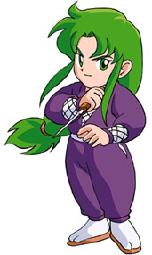
File: 1514156363524.png (316.64 KB, 796x712, 199:178, 1445195168429.png) ImgOps iqdb
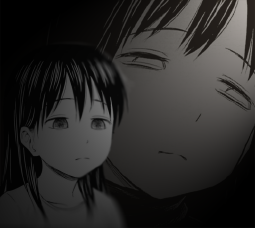
Studied daily and diligently since June till late October, when I mostly dropped everything due to depression/fatigue. Since then my studying was limited to checking up on unknown kanji when I see some in anime. I hope I find new motivation in 2018.
File: 1514159712469.png (8.87 KB, 316x94, 158:47, ClipboardImage.png) ImgOps iqdb

I think I'm off to a good start. I realize though 43 mins a day is not enough so I'll have to step up my game in 2018. I'm about 1500 words in with the 6k deck and will start reading yotsuba now.
>>25416
Good luck wiz I wish you to find new motivation and new willpower. Studying can be really tedious and half the days I didn't want to study at all, but I forced myself anyway. I doubt it's possible to succeed if we only study when we feels like it. Or at least it'll take 30 years to get anywhere.
really only started studying regularly again about a month ago, but I haven't missed any days (though I may miss tomorrow because I'll be forced into family stuff) Hoping to keep strong for this next year like I did back in 2015-2016 before I fell off for about a year
File: 1514241595781.jpg (210.86 KB, 1280x720, 16:9, books.jpg) ImgOps iqdb
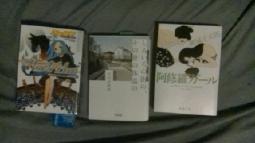
I got a few books today and read one for a couple hours easily without a dictionary. Couldn't have done that last Christmas. I'd forgotten how nice it is to read in print too, no distractions so I get more immersed and read faster than on my tablet or desktop. Anyway, do your reps and read lots every day (no exceptions) and you can do it too. Hopefully by next Christmas my listening won't be so shit.
Looks like I'm not the only person to read Zaregoto this year. I'm up to volume 6 and need to look up a word every 10 or so pages so it looks like your a tad ahead of me. It feels good to be at the level to be able to read nearly anything I want apart from really hard stuff like Muramasa. Hopefully I can get to that level this year.
>>25415
My reading improved heaps in 2017 and 2018 will be focused towards listening and reading harder stuff.
I think only the smart people post itt. I'm retard and I don't because I'm ashamed of being dumb.
Languages aren't hard they just require time to learn. Remember they are designed for even the lowest of the low to communicate their thoughts so it's not something like maths or programming that requires raw intelligence. This is especially true for Japanese that has simple grammar. It's just mass memorizing. And there are harder languages like Korean, Chinese and Hebrew etc.
It was consistent but as a neet I think I could have done better. It's incredibly hard to stay immersed in the language for the whole day. More than 5 hours and I can't even passively listen to a film with subs at certain point. It's interesting how even that has a mental toll on you.
>>25444
>they just require time to learn
That's the hard part about learning anything. It's the same thing for math, music, language, drawing… those thousands upon thousands of hours are not clocking in by themselves.
Those lowest of the low people you talk about had to clock in over a decade worth of exposition (from birth!) and schooling to be able to read and write and still they can't do it very well.
Japanese grammar is only simple if you judge it by the most superficial aspects like verb regularity. No one who has studied less than five intensive years will have 100% correct grammatical comprehension, let alone production. But yes, it's more a matter of dedication than intelligence. Anyone who reads and listens enough will succeed.
So the average weeb is a genius now, what a laugh.
I bet they're trying to learn a new language because they foolishly believe that they'd have better luck with foreign ricer waifrus.
They're just gone. I don't know where they went or how, but I know a lot of cards are just missing.
I'm at a loss for what to do. I have no way of knowing what specifically is gone, and I don't know how to reset anything without wiping my progress.
Ignore me, I'm an idiot.
I assumed that when I had the custom study session selected, deleting cards off of that would just put them back into the deck. Nope.
Oh, man, that is pretty funny. I wonder if I should even bother seeing as how I've somehow gotten dumber over the past month.
What you're doing is pretty much the worse possible route, wiz. You don't memorize pronounciations by themselves, you simply memorize words. Also forget about grammar, it won't really stick until you have some feeling of the language by reading simple sentences and having a basic vocabulary. Learn how to work with Anki, grab a Core Deck and start grinding. Soon enough you'll begin to notice there are patterns in those sentences. That's when checking grammar rules will actually be useful and make sense to you.
>>25463
>>25461
Never delete cards, ever. Suspend instead.
File: 1514471841472.png (9.35 KB, 405x288, 45:32, Capture.PNG) ImgOps iqdb
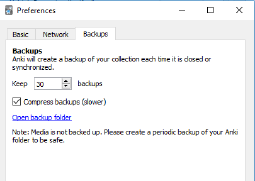
Anki makes a back-up every time you close it. Shouldn't be hard to restore. Google for how.
The readings of kanji change based on the word that they're a part of. So learn words.
If you learn a reading, learn only the one where it's the kanji by itself (if there is a case like that) since then at least you learn a word too.
You can check some book or guide on grammar but it's not that useful yet. So don't burnout trying to memorize them. The rules just won't stay with you because you don't have anything to apply them to. When you begin to have doubts on your own "why this particle always comes here? Why do I often see this and this particle glued together? Why sometimes is da and sometimes is desu but it doesn't make a difference in the translation?" then it's the perfect time to start actually studying grammar because your brain is picking the patterns, the explantions will make a lot of sense and you'll have no trouble memorizing them. If you try to memorize a bunch of rules to a game you have never even seen been played it's much more difficult. There's no context.
So, imo, focus on the Core deck and memorizing vocabulary. Pay attention to the sentences and you'll have a feeling for the language soon enough.
File: 1514554290745.jpg (43.21 KB, 720x596, 180:149, 1427859391451.jpg) ImgOps iqdb
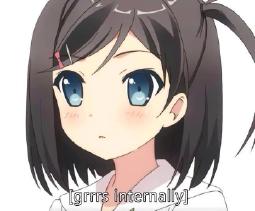
>Also forget about grammar, it won't really stick until you have some feeling of the language
Please, stop peddling this bs already.
Anyone who has watched at least a couple dozen titles already has "some feeling of the language" to provide an easy grasp on basic Japanese grammar and its principles.
And this is /jp/ ffs, so I have no goddamn clue why do you assume there are people browsing here who had no contact with the language through the media (and if there are such they don't belong here anyway so why even bother).
>practice words and read about grammar at the same time
This is what one is supposed to do while learning ANY language. And that is how most textbooks are organized. If you want a quick and easy grasp on all the basic grammar, read The Manga Way. Otherwise just follow your textbook of choice and that's it.
That other guy's insisting advice about ignoring grammar until one has memorized half a dictionary is nonsensical to say the least.
So you agree with me. You need to experience how Japanese works in order to understand the rules. If you read the post I replied to, you'll see the guy was obsessing over Kanji reading which is completely arbritary if you're not learning vocabulary. So no, even if someone watches anime, you can still have doubts about how to proceed with learning Japanese. That's why we have this thread after all.
>>25480
I never said half a dictionary. Those grammar doubts begin to appear in a matter of days actually, once you immerse yourself in those Core sentences.
Listen, you know what happens when you tell people to focus on grammar instead of grinding vocabulary? They go to a book like The Manga way and they spend all their time reading English explanations on Japanese grammar. Trying to memorize grammar this way and right at the beginning is counter-productive. It can take you months to memorize that book if you go with no Anki grinding under your belt.
When you tell people to focus on grinding the Core instead, what they do is they read Japanese, immerse themselves in written sentences and begin to pick up grammar along with it. After a couple of weeks or a month afterwards he can read and memorize grammar rules in a third of the time it would take if he never read anything. So I'm saving the guy's time.
I have experienced this myself. Focusing on English explanations on Japanese grammar fresh from memorizing kana IS A MISTAKE.
Fetch a Core pack, start reading Japanese, focus on learning words, the grammar will come with it. Once you have doubts arising from that, go to a manual.
That's I say it's not a good idea to get fixated in a grammar books from the start. It might seem I'm saying to ignore grammar period, but it's not the case.
>It can take you months to memorize that book if you go with no Anki grinding under your belt.
Finished Manga Way in a little more than a month, started Anki only after that. It was in summer. Still remember all the grammar from there. It's not that hard if you actually watched a lot of anime and have a feel for the language - the grammar just makes sense and fits into place like a puzzle.
Of course for a person who has never watched anime or otherwise been exposed to hearing a lot of jap (and thus imo doesn't fucking belong on /jp/) learning a bunch of words before starting grammar is sensible - but then again I repeat: most textbooks give new words along with grammar and examples of grammar using those words so that a student memorizes new words plus new grammar in one lesson. That's how it's always been with language studies and there's nothing wrong with it - you are just trying to reinvent the wheel for whatever reason.
>reinvent the wheel for whatever reason
I'm explaining how this stuff works to someone who asked a question. You on the other hand is here to 1-tell people they don't belong here, 2-how you watch tons of anime and 3-how grammar "just werks bro". All right dude, whatever.
I post here so people avoid the mistakes I did starting out and make progress as quickly and as painlessly as possible. You don't even disagree with anything I said. I guess you just really wanted to tell everyone how you watch anime.
File: 1514624732056.jpg (53.63 KB, 584x417, 584:417, yotsuba-yay.jpg) ImgOps iqdb

Gotta start somewhere.
Probably. Even though I'm just a few pages in, I really enjoy the lifelike atmosphere. There's something… wholesome about it.
So, going into it I resolved to reach an entirely doable, though somewhat unreasonable for a non-NEET like myself, two hours of hard study a day. This comes out to about 60 hours a month in theory, but I was able to push it a little further and get to 72 hours this month. Now for anyone wondering, in an average 30 day month, there is only 720 hours, which means I spent 10% of all the time available this month studying. A regular 8 hour sleeping schedule is already 33% of your available study time gone, and that says nothing of all the time dedicated to making food, working, and just general things that you need to do.
Allying this, if I was to maintain my pace every month, I would come up to ~860 hours in aggregate. This is not to say it's entirely accurate, after all this is just a metric for Anki grinding. I'm sure down the line reading manga and other things would bump it up a max of 4 hours a day (which is somewhat doable, since I can certainly have days where I do not actually have four hours of free time), but let's stick with this metric for now. This would mean to reach N1 proficiency would take at least 5.5 years. In reality, these hour numbers for proficiency levels don't really apply to us. To quote the source of these numbers, "The above stats is for full-time language students studying in Japan. Students average 40 weeks of classes per year at 32.4 study hours per week, which includes: class hours, homework, class preparation, and personal study hours." So these people are actually immersed in the language 24/7 living in Japan, as well as studying 4-5 hours a day. For us, the total number of hours a non-Japanese person working full-time would need to reach N1 may very well be double that of full-time students. So that would be about 11 years.
I dropped out of Highschool at the start of Junior year, grade 11, so it may take me more time than I spent in school to reach the bar of N1. You certainly don't need N1 to fuck around in Jap games or watch anime, but I wanted to know that anyway. I mean, at that point learning Japanese becomes less of a hobby and more of a life goal. One that doesn't really have any practical applications, since it's not like I'd ever move to Japan. We'll just have to see how far I make it.
What you need to learn a language is comprehensible input. Simply moving to Japan won't give you an appreciable amount of such input. That's why most expats in Japan are terrible at Japanese even after years. They expect to learn Japanese by breathing the air or looking at signs or hearing gibberish on trains. But that doesn't work. People who take these classes may be more proactive than the average JET moron, but most will still do the bare minimum needed to pass. And you're not going to get hired at a job that gives you lots of comprehensible input unless you're already decent at Japanese in the first place. So you need to read books and watch television (not passively). You can do that just as well outside Japan as in it.
More on that theme, and generally great advice: http://www.antimoon.com/other/myths.htm
Classes, being designed by and for extroverts, are based on traditional output heavy techniques (the same kind used in your high school Spanish to miserable effect) when all the science supports input-first methods. Moreover, they don't use spaced repetition software. With a focus on input and diligent use of Anki, you can easily progress twice as fast as someone taking classes. I passed N1 after two and a half years without ever setting foot in Japan. If you do manage four hours a day and study efficiently (switching away from manga to novels/VNs quickly, one-card-per-word in Anki), you can likely do the same.
Anyway, a passing mark on N1 isn't that high a bar. I'd be more impressed if someone could watch an anime like Kekkai Sensen and understand everything. Less than 25% of people who passed N1 can "understand the main points of TV news about politics, economics":
https://www.jlpt.jp/e/about/pdf/cdslist_e_all.pdf
Glad you're prepared for the long haul though. It certainly is one.
Hey, thanks for the post, Wiz.
Two and a half years sounds optimistic at the least, but there's no reason I can't try. Today's the first day I looked at the title of the thread and realized that I could read it, which was admittedly a little embarrassing to be excited by. Anyway, thanks for the info.
The above poster is mostly (not completely) right. I think Chinese online communities could be entertaining though with their high male/female ratio and their ruthless fucked up culture. This is just speculation though.
File: 1515770991725.jpg (88.45 KB, 577x720, 577:720, 1480194670792.jpg) ImgOps iqdb

>>25584
Thanks for responding. What about japanese classical literature and movies? Or modern non-anime media for that matter? Anime culture doesn't interest me that much anymore, I have my eyes on a few untranslated VNs but that's it. I love the language from an aesthetic and linguistic point of view but it would be big letdown if nothing worthwhile is written in it.
If you really love novels and movies, there are enough great Japanese authors and directors to keep you engaged for a hundred lifetimes. Don't just stick to classics or stuff famous outside Japan. Go through the winners of literary awards like the Mishima Prize until you find an author you enjoy and then read everything they've written.
I've been studying it consistenly for close to 21 months now. For the past 4 or so months my Anki time skyrocketed to 3 hours a day. Usually it was about 2, 2 and half hours but I added another deck to it and I'm beginning to feel it's getting a little too much. On top of that I read for 2 or so hours, mostly newspaper articles. Yeah, how pathetic I began learning this language to enjoy media but ended up reading shit newspapers because I feel they give you a more solid, varied vocabulary compared to other stuff, but that's not the point.
I'm feeling very divided on the issue of reducing Anki time. It's incredibly effective to the point I went from 0 to newspapers in less than 2 years but at this point it also feels exhausting. I had to reschedule my sleep to wake up 6:30 am otherwise I would need stop mid study to shower and eat and picking up rhythm again felt really annoying, specially after a meal. As anyone who does Anki knows, 3 hours of Anki actually takes a lot more time than that, to me it takes about 4 to 5 hours to clock in 3. It's also hidering my reading time and that's the worse part.
I would like to hear about your opinions on the issue and how do you carry your studies at this point. How's your Anki time? Did you get to a point you HAD to reduce it? What were the effects of that on your vocabulary? Right now I have about 10k words on the mining deck and I'm going through the first half of n1 Kanji. Those two are the most time consuming. I'm doing about 800 cards a day. I remember one wiz who had way over 20k cards on his mining deck and I cannot imagine reviewing that to any decent capacity to be an easy task. Thanks in advance for any advice you guys can give me.
File: 1516395351534.png (25.99 KB, 640x338, 320:169, vocab.png) ImgOps iqdb
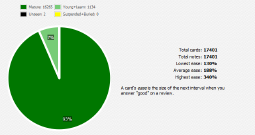
I do less than 300 reviews a day and it continues to decline because I normally mine under 15 new words a day. My peak was maybe 500 reviews when I was still doing a fixed 30 new cards per day. My Anki time has also decreased because I've gotten faster at doing reviews, a combination of kanji becoming easy through lots of reading and intentionally forcing myself to go as fast as possible. Instead of staring at a card for over 20 seconds, flip it and hit again. If necessary, you can install the Anki add-on "Automatically show answer after X seconds". That will force you to focus and answer quickly. If you're doing over 30 new cards, lower it.
Newspapers certainly use a large vocabulary, but there's plenty of everyday/literary words and grammar structures that are rarely used in them. If your primary goal is to get good at reading fiction, reading fiction will get you there faster than reading newspapers. Of course you need to read newspapers to be able to read newspapers well, but it's an odd thing to prioritize when you still have plenty to learn from media that isn't soul-crushingly tedious.
Thanks for responding wiz.
>staring at a card for over 20 seconds
I'm guilty of that. It's not uncommon for me to stare a full minute even at about a dozen cards during a session. And there are several it takes me 15, even 20 seconds to find it down there somewhere. I guess that's part why it feels exhausting. I have no idea actually how other people use Anki but that's how I usually go about. I'll cut this shit out then. Currently I'm doing 25 new cards. That's the biggest amount I've ever done and I feel it's pretty much my limit.
I'm currently playing Dragon Quest 11 along with the articles reading. The games I like are typically the grindy type and you read pretty much the same dialogues and the same words over and over again. After 5 hours playing that you realize you learned 4 or 5 news words. An article on the browser however I can click once and the meaning is there, then 3 more clicks and I've send it to Anki already. Very convenient. Not to mention the amounts of names, both of people and places, historical and current figures and all the common knowledge things people reference all the time in those articles. It feels a lot more rewarding than playing the games I want to play. It sounds pathetic I know, I should be glad I can finally play Dragon Quest without depending on translation patches (that I recently found out that are not even bad, which is funny).
The other stuff I really want to read is old novels and tales like https://en.wikipedia.org/wiki/Kojiki https://en.wikipedia.org/wiki/Nihon_Shoki https://en.wikipedia.org/wiki/Nihon_Ry%C5%8Diki https://en.wikipedia.org/wiki/Fudoki
https://en.wikipedia.org/wiki/Ugetsu_Monogatari
https://en.wikipedia.org/wiki/Konjaku_Monogatarish%C5%AB
Needless to say that stuff is WAY, WAY BEYOND what I can read today. Anyway thanks again for replying wiz, I appreciate it.
I forgot to ask btw what are you currently reading for fun and how hard is it for you to read it.
Wow. I am so jealous of you, how you are able to keep at it. 16,000 kanji, you probably know more than the average Japanese native.
I can barely do my daily Duolingo lessons. And I need to restart Anki and get to it. I don't even know all of the first grade kanji after 5+ years of wanting to learn Japanese.
That's his vocabulary deck wizzie, there isn't 16k single Kanji in there, more likely about 2k. Regardless, that is a respectable deck and a good amount of sweat and tears is required to reach that amount.
Oh. Well, either way I am jealous of the ability to study consistently of fellow wizards in this thread.
What decks do you use? I am using one that I think is called Japanese Core 2k or 6k IIRC, but I changed the name. It has images and voice. But it starts with あ vocabulary instead of starting with numbers and days, like it was doing before.
>>25663
>I am using one that I think is called Japanese Core 2k or 6k IIRC, but I changed the name. It has images and voice. But it starts with あ vocabulary instead of starting with numbers and days, like it was doing before.
Nevermind, I fixed that by exporting and importing it, and now it is working as intended. I'll have to restart though, which is fine.
It has 5999 cards. Which decks do people here use? Which are most effective? How do I get myself to study everyday?
Don't hesitate to reduce your new cards to 20 if you can't otherwise lower your reviews. It won't be that long before you're struggling to find enough new words to meet your quota, so there's no reason to torture yourself now with 800 reviews a day.
>>25660
I'm halfway through 砂糖菓子の弾丸は撃ちぬけない. The grammar is easy and there's been maybe 10 unfamiliar words so far. It's interesting enough but hasn't had any particularly exciting or moving scenes yet. You can read it here if you want:
http://djt.netlify.com/b/[%E6%A1%9C%E5%BA%AD%E4%B8%80%E6%A8%B9]%20%E7%A0%82%E7%B3%96%E8%8F%93%E5%AD%90%E3%81%AE%E5%BC%BE%E4%B8%B8%E3%81%AF%E6%92%83%E3%81%A1%E3%81%AC%E3%81%91%E3%81%AA%E3%81%84/[%E6%A1%9C%E5%BA%AD%E4%B8%80%E6%A8%B9]%20%E7%A0%82%E7%B3%96%E8%8F%93%E5%AD%90%E3%81%AE%E5%BC%BE%E4%B8%B8%E3%81%AF%E6%92%83%E3%81%A1%E3%81%AC%E3%81%91%E3%81%AA%E3%81%84/index.html
>>25661
Like anon said, it's vocabulary covering 3460 kanji. A native is certainly much better than me (in terms of vocabulary, reading kanji isn't much of a problem now except names).
Mishima's 金閣寺 was probably the hardest (and best) novel I've read in Japanese. It would not be a gentle entry point. But there are difficult and easy authors in both mediums. With exceptions, modern literature is mostly written in plain Japanese and isn't much harder than an average plot-heavy VN. It's easier, on average, than VNs by authors like Urobuchi or Narahara or Mareni. With classic literature, you need to get used to the archaic vocab, but it's often more similar to modern Japanese than you would expect. See for yourself with ドグラ・マグラ:
http://www.aozora.gr.jp/cards/000096/files/2093_28841.html
Or 坊っちゃん for something shorter:
http://www.aozora.gr.jp/cards/000148/files/752_14964.html
File: 1516450682451.png (18.99 KB, 307x99, 307:99, anki-stats-2018-01-20@10-0….png) ImgOps iqdb

>>25665
Just to give some feedback on your advice, today I went as fast as I could without reducing the number of new cards, just to see how it would go. Overall it went pretty good. There was a 7%ish drop on the number of correct cards but that was expected and I don't really care. A 40~ minutes cut doesn't look that much but it makes a lot of difference mentally, I don't feel as tired. The only problem I had was during Kanji. I like to mentally stroke them out before hitting and going as fast as I could I didn't do, somehow it felt lacking.
>djt.netlify
I had completely forgotten about that site, thanks.
I have wanted to read 坊っちゃん for a while. I guess I'l start it after I finish the VN I just started.
The true retention extension would be very useful when experimenting with going faster.
Stop learning kanji in isolation and start doing the core 2k/6k anki deck linked in the op post. Learning kanji in isolation made sense when you had to use paper dictionaries when you saw a character you didn't recognise but in the age of mouse over dictionaries it makes more sense to just learn words.
I can only speak for myself but I never try to learn Kanji beyond my vocabulary. When I do know a couple of words involving a particular Kanji, then I do study it in isolation.
To get a lot out of extensive reading, you really need to be coming across a limited amount of unknown words, as in only one or two a page. The benefit is taking in more comprehensive input but if your reading level is too low the content really isn't all that comprehensive and you'd be better off taking more time and reading the text more intensively. Spending as much time as possible reading and understanding enough of the text to enjoy it is better than some 多読 for learners.
In short: read as much as you can and leave any sort of targeted extensive reading till you have a base functional fluency and looking to grind from 95% to 100% understanding of most things.
tomodachi, gakusei, sensei, san, shiimai, ocha, seimei, deguchi, kado, kasa, kai, yune, kusa, basho, ren, haru, uuyu?, natsu, ii, ai, ringo, tomago, tango, gengo, chizu, jashi, rajio, benwa, tsuki, mise, minami, te, soong?, oto, jugatsu
friend, student, teacher, mister/sir, sister, tea, life, exit, corner, umbrella, floor, roof, grass, place, year, spring, winter, sumer, fire, love, apple, egg, word, language, map, magazine, radio, telephone, moon, store, south, hand, noise, sound, october
that's what i can remember i guess. a lot of the big words (more than 3 syllables) i cant remember. just hearing it verbally and repeating everything was pretty easy so i might continue learning more words like this. when i was little my mom used to go over my classwork and repeat information about the lessonn with my all day, because i had adhd and reading and looking at stuff is impossible, but her thing worked and by repeating everything she said i got super grades so i think ill continue this. it is much easier than looking at text or reading or physically having to focus on something than simply listening
Here's an example:
つっかえて動かなくなっちゃったんです…
The translation I get is: I'm kind of stuck here. I can't move anymore…
When I look up the words individually, or try to I get this: Replace. It does not move. I became wrong.
Searching every possible combination to figure out which one is the word is confusing, I get a lot of different results. Is there a good translator I could use or another way of doing this? I've tried different translating websites but they are equally confusing.
Hey wiz. There's already a Yotsuba reading pack with all the words and some sentences for the first few volumes. http://livingjapanese.com/pages/yotsubato_reading_pack1.html
Are you using some Core deck along with it? If not, do so, it really helps. Most of Yotsuba vocabulary is inside the 6k Core, you can find it on OP.
>difficult to tell where one word ends and another begins
Practice is the only way out of this, keep practicing. Learn to revert words back to its "dictionary form". Try reading Japanese the Manga way, there are chapters where he talks about it and it's really useful.
Now let's look at the sentence.
つっかえて動かなくなっちゃったんです…
Words in order are; つっかえる, 動ごく, なる, の, です.
The first one is in its て connective form, the て works as an "and" by the end of the word, so "Stuck and". 動ごく is in its negative form 動かなく. なる is in its informal past なっちゃった, formal would be ならなかった. Now, you can't actually read の in there because it's contracted into んです. That ん there is how の comes out in informal speech. のです in this case is offering explanation.
Literal translation would be "Stuck and - not move - became - is".
Yes, in the beginning even finding what is what can be a frustrating task. Stick with it, grind vocabulary and study grammar, it only gets easier.
>go back to the Japanese and find the words that roughly correspond to the translation
The problem with translations is that they don't work in a word per word correspondence. Ditch that, learn how to revert words back to dictionary form and keep reading, you'll improve.
Have you read the guide linked in the OP and reviewed the resource list? There are various tools there that will help you. That weird translation you gave gives me the impression you're using Google Translate or something instead of a proper dictionary.
By the way, the official Yen Press translation of Yotsuba is much more accurate than the fan scanlation, in case you're using that.
That sentence is pretty easy. You probably followed the advice of "do not learn the grammar yet" guys, that's why you're having trouble.
So here you have it: learn basic grammar at least through stuff like "The Manga Way".
>なる is in its informal past なっちゃった, formal would be ならなかった.
What? No! It's in the contracted "regretful" しまう-form. The formal one would be なってしまった。
yeah forgot to add that. It's on past on going plus regret, that's right.
>>25886
He said he doesn't get 99%, that means not a single full sentence. Finished with Kana and went straight to native material perhaps? If it's literally 99%, going through "digested" Core sentences and some grammar guide along with it might be more suitable at this point.
It's important to assess your situation. If if you're getting stuck for hours in a single page, your time would be put to better use going through the basics.
File: 1518130224975.pdf (155.63 KB, AMB_Japanese_Verbs.pdf)

Yeah. Imho it's absolutely pointless to try reading native material without at least having this chart in the mind and understanding how it works.
File: 1518214263589.jpg (109.47 KB, 615x496, 615:496, d010.jpg) ImgOps iqdb
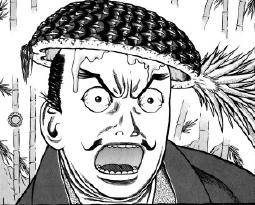
Portuguese isn't too difficult, there's a lot of similar words in english. I would say focus on PT for work, every couple days or so when you have time review your Japanese and learn more grammar. Alternatively you can have a day on learning PT then the next day or so learning JP. 7-8 months in you should retain a decent amount of japanese so a short break won't hurt, just don't wait weeks without reviewing you will lose things then. That happened with French for me then I moved to France for a year, relearned it quickly but the first few months sucked
Frequency list from newspapers. I did the first 2100 words and encountered maybe 50 words I don't see regularly in it.
W-what? Not only do I not understand your question but I also cannot understand how you cannot understand that kanji can have different reading.
General rule is onyumi for compound words and kunyomi for verbs and single words. Names can be any combination of them and nanori (name only) readings.
>I also cannot understand how you cannot understand that kanji can have different reading.
what? that is what my whole question was about, the difference in reading in a scenario when someone asks anothers name and they dont know how it's spelled or what it means. didn't know about nanori but that seems more like what i was describing yes
Without it over half my free time everyday would be spent towards reps. Wageslaving still sucks though.
Same. I actually mostly use my smartphone for that. If anki mobile didn't exist or I didn't have a smartphone I'd have given up.
It is covering the basics, 党 is a very common Kanji that appears in a lot of political related words and that's why it's there. It might look it's not that common but once you start reading stuff you'll see for yourself it's in fact everywhere.
I've brought up an incorrect example, sorry. What I really meant are words like these: 選挙 候補 就職 評価 故障. Why would need all that before even hitting the first thousand? One isn't even supposed to learn those composite nouns before learning the kanji they are comprised of and their 音s.
I ended up dropping anki altogether because fuck that shit - the reasonable flow of kanji and words according to the rise of their complexity as given in the textbooks I use is way more comfortable and sustainable.
What about stuff like "autumn equinox"? It may use common kanji but how is something so specific a priority to learn?
It seems you already made your choice about Anki. You're right about words relating to politics and economy being overrepresented in those decks. However it's a very small setback when you compare with all the advantages it has. I suggest you to give it a second chance to it, it's the best way of acquiring vocabulary when starting out and even those words are not going to waste, it's not like you're wasting your time.
Well the core decks are taken from newspapers, so of course there'd be a lot of political stuff in them.
Consider switching to the JPLT N system, and start with N5.
I've been doing that since the beginning (plus a few handful textbooks in my language). And I'm already doing N3 tests with 80% success rate. I used Anki just as an extra and found it to be weird because of all those thematic and not even especially common composite 漢語 nouns, which I'd rather learn once I actually encounter them as opposed to being force-fed them arbitrarily in such a way.
I'm sorry for blogging.
NHK has an easy news section. Very short texts with the audio to go along with it. It's probably not quite what you're looking for since those are not lessons per se but it's an useful resource.
http://www3.nhk.or.jp/news/easy/
I'm just about four months into grinding Anki, but I only read a couple chapters of grammar every other week, it's frustrating. Should I just set up a timeblock where I absolutely have to read a chapter, or is there some better way?
Since you seem to have built a routine for Anki, use that to study grammar as well. Get the Dictionary of Japanese Grammar from the green list (you can find it at the OP) and start grinding just like you do with your other decks.
Probably impossible to fully master without living there
I had seen some video series by a native explaining a lot of the sounds but they seem to have removed it. If you want to dig it was japanese with hanako or something similar.
File: 1523316056765.png (808.3 KB, 690x3143, 690:3143, anki-stats-2018-04-05@23-0….png) ImgOps iqdb

So, 2 years. This is going to be a lot shorter post because I had all in the works already, as far as how to learn a language and how to not burnout and so forth. I've been doing pretty much the same thing I did for the first year. Pretending it's a religion, basically. In fact at this point I think it might be. Studying every day like you'll be damned if you don't. Having appreciation for every new word you learn and always keep in mind it's a long road. 2 years in and I can honestly tell you I don't think I'm even half way there yet. Maybe in 4 years, but I'm getting ahead of myself.
I'm still using Anki, still reading native material and fairly recently I added listening on top of it as well. It's a good thing I posted my graph from the first year otherwise I wouldn't be able to compare it. Pic related is the graph for the last year. As you can see I have absolutely no time whatsoever for cramming anymore. At all, those days are over. There's just too many words to waste time cramming anything. It's a lot easier to learn a new word now that it was a year ago but since I try to keep myself on my toes all the time, I kept the difficulty by simply learning a lot more words than I did previously. For the first year I had about 2k to 3k words. Now that my mind has a better grasp on how Japanese words look and behave, I can pick up more of them. For the second year I added about 5k. Still can't read for shit though. 8k words in, I still find new words every single day and I don't even read hard stuff either. I'm talking about manga and literature for children. Just before I began writing this I added another one; 凌ぐ. Two years and it's the first time I came across it. I know because I add every single new word I find to a deck. No exceptions. There was no duplicate, took me two years to see that word for the very first time. Common as well, makes you wonder how many words just stay there in your brain for years, maybe decades before you see it again. Funny to think about it.
All my vocabulary comes from one of these sources; Yotsuba (read in my first year) NHK news (began with easy news, now I read regular news, read for an hour every day), Doraemon, recently finished all the 40~ volumes, fables for hukumusume.com (they have audio for all the stories, really nice, some of those people are really good voice actors) which I also read for about an hour and 窓際のトットちゃん. I picked it up because it's a feasible read at my current level but dropped it about 50 pages in, too boring. Couldn't muster the courage to open the damn link every day. Finally, I'm using a guest account on Netflix to watch all those Japanese series they have in there. They're all terrible mind you, but there's one huge advantage to them; all are subtitled in Japanese. This is a tremendous help. It's very hard to find Japanese media with Japanese subs but Netflix has it. All in all, I'm doing about 6 hours of study every day, where 3 of those really feel like studying (Anki grind) and the rest feels like semi-fun. The real fun is when I come back to something I read months ago and couldn't even figure it out the topic was but now it's all very crystal and "easy".
Can't read any actual books written for adults. Can't follow even the simple stuff without subtitles. What's funny, recently I ended up on a Wikipedia page in Italian and guess what? Without a single second of learning Italian in all my life, I could read better than I could read the Japanese page on the same topic. I can't skim through a page in Japanese to save my life. AT ALL. I have to go very carefully, sentence by sentence to know what they're talking about. Italian? Yeah, could peruse the whole thing just fine. Another thing I noticed recently, and that's because I just recently could even begin to try it; thinking in Japanese. Simple stuff. Like: I wonder if there's some of that chocolate left. Or "Why can't I download this if there are 5 people seeding it?" Trying to think in Japanese is where I can really see how far I am from fluency. And I'm not talking about fluent like a native, I'm talking about foreigner fluency, having all the basic grammar and all the basic words really clear and figured it inside your head, ready for easy output. I don't, not even close. Even basic particles that I can instantly recognize when reading get really rusty and hard to come out when thinking by myself.
At this point I feel like a Japanese learning zombie machine. No emotions about anything anymore, just collecting all those words and getting ready for the next day. I'm fairly confident this is a good way to go about it. No passion whatsoever, your only motive is habit and routine. Doing it every day, that's it. Well, to be fair, a couple weeks ago I got very angry over not being able to remember what ひょうめい meant. That's another thing. You spend a long time disliking the Kanji system and once you get fairly used to it, when people write words you know without the kanji you just simply can't remember them. 表明, sure, ひょうめい? No fucking idea. It's intriguing.
Then comes the fact I can't even write the Kana. I never actually cared about it until watching some videos on Chinese calligraphy. I tried to hand write some basic sentences and guess what? Doesn't matter if you saw them a million times "literally at this point" if you didn't specifically practice the output, it's just the same. So for the next few months I'll be copying by hand some short texts just to have some Kana muscle memory. I don't think I'll ever use it but it just doesn't feel right to be unable to hand write the syllabary from the language I've put around 4k hours in.
>>26506
Keep doing the grammar. Don't worry too much about not remembering Kanji right now, it's pretty difficult to remember them when you have little or no vocabulary. Once you start grinding a vocabulary deck it will get easier to keep up.
Your post discouraged me a little,It seems that you need a fuckton of time to study japanese,I can only study like 2 hours a day if I'm lucky.
At this rate I will never be able to read shit,may as well drop it already..
Don't be, wiz. Put in the time you can and do it every day, you'll make progress. If you do take it seriously, you'll be able to read stuff in less than a year actually, but be asured it is a long process regardless. There's a lot of satisfaction in being able to read even simple manga like Yotsuba. It feels really good when those sentences make sense, so it's not like your effort won't be rewarded.
>>26509
For the first 6 months or so I wasn't and I still put in about 4 hours. What I did is I would wake up at 5am and put in all the time I could before 9. Just focused all my prime hours into studying and didn't give a shit about the wageslavery. As you progress you'll be able to squeeze a lot of studying whenever you have time to it.
Use anki mobile and whenever you have even 30 seconds of time knock out a few reps. Then use free time from work for finishing your reps + study and reading
File: 1523398761027.png (197.35 KB, 361x361, 1:1, 1521301042406.png) ImgOps iqdb

>study 6 hours a day and not even half way there
>it will take me a few years to be halfway there
If this is true then I'm screwed, it will be more than a decade before I learn moon speak.
>those charts
I am having real trouble with just 250 a day, holy shit.
What's you're accuracy on an average day? I barely keep it below 10% incorrect, I can't imagine what'd it'd be like if I was doing over a thousand every day.
I'm eight months ahead of you and my experience was not nearly as painful. It's certainly not because I'm smarter or more dedicated. My memory is shit (I use mnemonics extensively to compensate for it) and my focus is terrible. It comes down to how we spent our time.
- You used a Core deck that contained multiple cards for each word. Mine was one-card-per-word. So while my Anki card count at the two-year-mark was similar, I had twice the vocabulary.
- You spent a lot of time cramming in Anki and still push "Hard" very often. I used that time to read. Also, I switched to reading VNs after a dozen volumes of manga. With manga, you spend more time reading less text.
- Compelling content. It seems like you haven't really found anything that compels you yet. When I'm reading compelling content, I'm fully focused and easily read three times faster than when I'm forcing myself to turn the pages. It's not just fun, it's good for your Japanese because you get more input in less time. As a result, I'd read a lot more than you two years in. Often you have to sample a bunch of boring crap to find a story that moves you. But I hope you find something. You don't need to feel like a "zombie machine" doing sacrificial reading to the nihongo gods. Reading should be fun.
You're right that it takes a ridiculously long time to get good at Japanese. My listening is pitiful, I occasionally run into sentences I do not understand or have to analyze, and I encounter a few new words every day. I make stupid mistakes all the time. But I can read adult novels easily, I can skim, I can think in (basic) Japanese. I follow my routine strictly and, like you, have dedicated my life to learning Japanese - but (apart from the morning Anki) it's fun. Because I choose to spend the majority of my time having fun. And my Japanese is better off for that. I don't mean to be critical. Your exact methods don't suit me, but they will end in success. Most of the things I would consider mistakes are behind you. I just don't want beginners to believe learning Japanese always turns you into a joyless robozombie who feeds on Anki reps and NHK articles.
Ah, I just remembered I'd lectured you about compelling content before, and you responded. Sorry about that. Everyone's circumstance is different. Good luck reading that ancient shit someday, I'm sure you'll make it with your absurd stamina.
File: 1523477499028.png (121.97 KB, 410x471, 410:471, alien.png) ImgOps iqdb
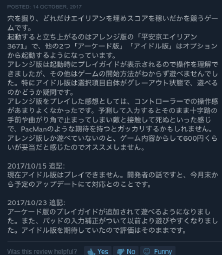
So yeah, I made the post to tell you it's all fucking lies. Japanese is hard to learn, it's not that you're dumb or unable to do. It will take a lot of time even if you take it seriously. Having that in mind, I thought one could come to terms with it and get to studying without getting too concerned how long it will take or doubt your own intelligence so much. I'm sorry. Let me try to get on the positive side of things a bit, don't give up just yet!
Let me clear out a few things about my post. First is, what I mean by literature for adults. I said I read the newspapers everyday, that's text for adults and I can read that. What I mean is classics of literature like Botchan or the stuff by Akutagawa. However, if you really want to read something, after 18 or so months you can. Even the really hard stuff. It won't be easy, but you won't get stuck either, meaning you'll be able to figure it out most of the problems you'll encounter. Lots of sweat but it's possible. I'm assuming however that most people here want to learn Japanese to play games and enjoy anime/manga. Those will take you a lot less time. Those things are mostly day to day language. Let me give you an example. I just finished watching a netflix series called Samurai Gourmet. It's about 20 minutes per episode and there's lots of dialogue and simple musings on the part of main character. I mined about 3, 4 words per episode. That's it. That's because usually people won't use lots of words on a daily basis. So don't think that you won't be able to enjoy things before a decade, I guarantee you can in a much shorter time than that. Games is even easier. In fact I dropped Dragon Quest XI because it wasn't giving me enough new words and expressions (plus the game kind of sucks).
>>26536
It will take you A LOT LESS time than that to be able to read basic stuff. Anime/manga/games are all for the most part, basic stuff. Like dialogue between two people or brief description of places. If you're studying daily you'll be able to go by fine in 2 or 3 years. Plus, it gets easier after the first year, so don't give up.
>>26537
Well according to my graph there about 80%. I guess you should take >>26540
approach and don't focus so much on Anki, and don't focus on your Anki numbers at all, that's a mistake for sure. Just focus on reading and listening everyday. Anki is important but like that guy said I think I really over do it the Anki grind.
>>26540
Hey man, nice to hear from you again. It's good to have someone here ahead of me. It's funny you mention you can skim text because just now I was trying to, and failing to do it. I just found out someone released a new Heiankyou Alien clone on Steam. One of my favorite games. Some guy made this comment about it, pic related. Pretty straight foward, fairly simple text. Can you tell in 5 to 10 seconds what are his two major complaints are? Because sure as hell I can't.
Here's what I could do in 5 to 10; First sentence talking about holes and aliens, don't know…emmmm, something something, something about the controller. That's it.
>>26541
You did yeah. I've been reading fairy tales and stuff like that along with it now. The news are not that bad to be honest. You get to read about lots of topics, I like that aspect of it. Are you still reading 砂糖菓子の弾丸? How is it going?
>have dedicated my life to learning Japanese
By 2028 I intend to start some Chinese on the side too, who knows.
>Good luck reading that ancient shit someday, I'm sure you'll make it with your absurd stamina.
Thanks wiz, if I don't die or get some brain impairment I'm 100% sure I will.
Sorry if my post came off as bragging. A big part of the difference between us is simply that you have higher standards. I wanted to highlight the positive aspects because I'm very satisfied with my progress. Learning Japanese is the only good decision I've ever made. But I understand why you chose to emphasize the other side: There's already enough hucksters who downplay the difficulty of Japanese.
I didn't understand that screenshot within 10 seconds. My eyes skipped over most of the katakana except words that are common enough to have become a symbol of their own in my mind like ゲーム. I got lucky and caught 操作感があまりよくなかった but didn't accurately understand the other complaint (or most of the post) from skimming. Normally I skim very simple stuff like 5ch posts and erotica, where it doesn't matter whether I skip the hard parts.
To clarify, when I said I can "easily read adult novels", I wasn't talking about pre-war literature. I read a few Soseki books but it was with difficulty, and I made lots of interpretation errors (I checked the translations after). Trying to read Akutagawa made me want to kill myself. I can't even imagine reading that guy comfortably without a dictionary. Maybe in 4 years.
I finished 砂糖菓子の弾丸; disappointing overall. I try to read a novel a week through the power of compelling content. Right now I'm enjoying くっすん大黒 in print.
>it wont take that long if you just want to read manga and games
You made it seem like it would take forever in your other post, but if it will only take me 2-3 years then I'm relieved. I don't care about classical japanese intellectual shit, I just want to read hentai and visual novels that will never be translated and there are tons of them.
No, you're right. It's an exception. If I recall there is a list of the most common exceptions somewhere on Tae Kim's guide. If there isn't you can certainly find it with a google search. It's easier to memorize them once you have seen their conjugations many times over, so there's no need to stop your grammar study just to memorize those exceptions. It will come to you eventually.
And yes, formally it's ある, but it gets reduced to just ない in its informal negative form. ない in turn always conjugates as an adjective regardless of the verb it is attached to. That's why it's just なかった (would be ありませんでした in polite form).
If I take the noun 怪我 how are you meant to conjugate it? on Anki "injured" is written as 怪我した which uses the past tense of する, so do you have to use a second verb in order to turn a noun into a verb?
Only verbs and adjectives can conjugate. The nouns you're talking about act as verbs when する is added to them. They are in fact called "suru-verbs" and are marked correspondingly in any decent dictionary.
Btw, these things are pretty basic and you would know it if you simply read some entry-level grammar stuff like the Manga Way. But people itt insist on mind-numbingly grinding Anki instead. Whatever.
Mnemonics are probably good for grammar and conjugation, but I doubt they'll be of much use until you've developed a decent vocabulary.
Like in learning English in primary school, they had all sorts of mnemonics for grammar, but all the vocab was done completely flat. Mostly I think because using it for vocab would be so time consuming that you would be completely burned out for studying grammar. Retention comes from hard work, unfortunately. There's no two ways about it.
The "mnemonics" you're talking about sounds like learning words in context, which is what almost everyone does after (maybe) the beginner phase. You learn Japanese by reading and listening to Japanese content, and speed up the process by mining the words you find into Anki.
Most of the pairs follow a few basic patterns:
http://nihongo.monash.edu/ti_list.html
There is no reason you need to specifically memorize any of this. Just read and listen a lot and you'll be able to pick the right one because it sounds natural. You don't even need to know what transitivity is.
File: 1525148093723.png (201.52 KB, 640x400, 8:5, prison.png) ImgOps iqdb

What does this say お弁当を私は公園で食べた ? I think it says 'I ate box lunch at the park'. I'm having trouble translating it because を is between watashi and park instead of between a verb and noun.
But the を in the sentence you postet is between 弁当 and 私 as it should be? So your translation is indeed correct.
>を is between X and Y
That is the wrong way to look at it. を is appended to, behind お弁当. It's relative positioning to 私 is of no consequence. That is how particle placement works. The sentence would still have the same translation (though perhaps a different connotation), if it was お弁当を公園で私は食べた。or another order entirely as long as every noun still has its correct particle appended.
Japanese has simple ordering and structure all things considered. I'll try to explain it in a beginner-friendly way.
The one golden rule to remember for ordering is verb goes last, everything else goes before. That's it. Other than having the verb last order doesn't matter. Of course there are certain orders that are more commonly used than others, but they all ultimately form grammatically correct sentences.
As for particles the ending verb isn't linked together with one. Everything else is. Particle goes after whatever it's linked to. You read a word, get the role, read another word, get the role and so on.
The common particles you use to build sentences in this manner are は, が, を, に, で and と (others exist, but I'm keeping it simple).
の is another common particle, but is NOT used in the same way. This particle doesn't satisfy the need any non-verb has for one. Instead, it can be placed between two things to announce ownership. AのB.
For example treeのfruit is translated to (a/the) tree's fruit or fruit of (a/the) tree (could also be plural). If this example was part of a real sentence it would additionally be expected to have a particle at the end to fill its role.
If the tree's fruit was doing something it could be treeのfruitが.
Maybe it was used to do something? treeのfruitで.
Or was it the target of whatever was being done? treeのfruitを.
Even if more complex stuff exists, these basics always hold their ground.
I imagine your confusion begins when someone decides to for example describe the tree in question. This can be done with a verb and suddenly the sentence seemingly has two.
The growing tree's fruit.
Growing+treeのfruit.
The rules are still the same. The growing tree's fruit will still need a particle to give it a role, the core verb will still be at the end of it all, but the verb used to describe obviously isn't.
And if you're wondering what common sentence order looks like, I'd say something like this:
1) Aは/が
2) Bと
3) Cで
4) Dに
5) Eを
6) verb
Positions 2, 3 and 4 are quite loose from what I've seen.
Other things DO exist, this is a simple version. Sometimes a sentence has both は and が for example. は could lead in by explaining the topic that surrounds the coming sentence which then uses が. Maybe something like 'On the topic of x, y did z.'?
It also goes without saying that very few sentences need all of these particles to function.
Lastly, please do keep in mind I'm not a master of Japanese. There could be mistakes in my advice. I'm currently on my sixth year of somewhat casual self-studies. Take it for what it's worth.
File: 1527014364074-0.png (5.08 KB, 422x212, 211:106, XwEogEV[1].png) ImgOps iqdb
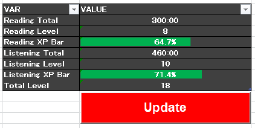
File: 1527014364074-1.png (25.23 KB, 953x575, 953:575, tF15p9m[1].png) ImgOps iqdb
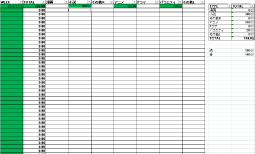
File: 1527062113902.png (665.86 KB, 1040x614, 520:307, Untitled.png) ImgOps iqdb
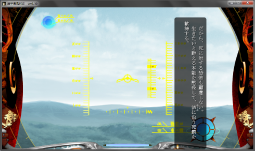
File: 1527135712540.png (1.15 MB, 3458x2103, 3458:2103, 出来ない.png) ImgOps iqdb
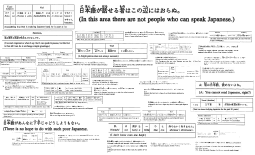
what is that called? I completely forget.
In the past, grammar was impossible, but after I did about a month of sentences, it became easy and now it's second nature. Doing just a 2k/6k deck is helpful, but not really that efficient.
Nowadays I try to get Anki done under an hour or 45 minutes so I can do stuff I enjoy. Previously, I did Anki for 2-4 hours and by the time I got done, I was so worn out I just wanted to do stuff in English.
you can hear someone else laughing in the back. I think this was intended to be a joke.
I wish Anki wasn't so boring then I could actually use it
>>27143
>Nowadays I try to get Anki done under an hour or 45 minutes so I can do stuff I enjoy. Previously, I did Anki for 2-4 hours and by the time I got done, I was so worn out I just wanted to do stuff in English.
You guys should consider drastically reducing the number of new cards per day. Jesus Christ, in how much of a hurry are you? I have it set to 5 cards per day from my deck which is partially built from the vocabulary of my learning resource and words I add as I come across them. Only on considerably bad days it takes me longer than 20 minutes to complete my cards.
You should also think about how you learn and if there isn't a better way.
My recommendation on how to efficiently learn with anki and similar methods would be to have it show you the word in the language which you already speak (e.g. 'magazine'). Then you write down the kanji and pronunciation in hiragana[or just hiragana/katakana depending on the word] and compare that with the backside of the card where these two pieces of information are written (e.g. 雑誌 ざっし). It becomes much less of a mindless grind and more active practice this way. Retention is also much better in my experience and those pesky kanji that only differ by a single radical from each other are no issue anymore either than if you were learning to read only. Plus being tasked to translate from English to Japanese instead of the other way around helps massively with my own ability to communicate in Japanese since finding the Japanese words is already an automatic process through how I learned them.
Not really sure. I found something called Crackbuilder which works for some VNs, so it's all good.
You need about 4000 to 6000 to be decent at the language. At 5 words a day that will take 800 to 1200 days or 2-3 years. I don't have that kind of patience, Progress would be so slow and very demotivating.
But there is plenty of material you can read without being "decent" at the language, i.e. which is below "average newspaper front to back" in difficulty. But if you absolutely need to have it done as quickly as possible, be my guest.
What I would like to say however, is that I do not learn an average of 5 words per day; I learn more through near-daily exposure to written and spoken Japanese and looking words up very frequently. But for 5 new words every day I start going through the steps necessary to have full command of it in my verbal as well as (hand)written language. Frankly I found grinding the Basic 2k/6k deck (which is clearly targeted towards the business men I mentioned in my previous post, judging by the vocabulary in it) at 10 new words per day much more frustrating than practising my self-curated deck suited to my actual needs. The number of cards I need to relearn after a longer time is very low contrasted with my earlier experience, which feels very satisfying and I have a lot more time in the day to spend on tightening my grasp on the grammar.
But to each his own, I do not wish to convert you to my way of doing things, as you seem to have found a way well-suited to yourself, but perhaps show other users who are contemplating learning Japanese (or any other language) or who are stalling and frustrated currently another method which admittedly is a fair bit slower in the accumulation of vocabulary, but the way I see it also more thorough and thus long-lasting in effect.
No matter if you choose to learn 10 or more words per day or not, I urge you to try out learning your words the way I pictured in my previous post; it may benefit you greatly, and giving it a try probably won't hurt you and your progress.
>You need about 4000 to 6000 to be decent at the language.
Boy I wish that was true. I'm a little over 11k and not a single day goes by that I don't find new words. I tested my English vocab and it turned out to be around 25k. My English is shitty but at least I won't find new words reading some wikipedia article or watching a shitty series. Something that happens often when I do those things in Japanese.
So yeah personally I would put "decent" at around ~20k.
It's easier to add more words a day later.
My issue is that I've trained myself to hate Anki. I killed myself by trying to do 25-40 new cards a day and making my reps absurd. If I started with just 5 new cards a day and slowly worked up over time to 20-30 a day, I'd probably not shy away from Anki so much.
From what I've seen, HiNative and Chiebukuro could be a good bet, but I'm not sure if dumping a bunch of questions on such a site would be a good idea. I could make separate questions for each one, but then I'd need to make a lot. Has anyone used these for such a purpose? Are there any more suitable places for it?
Chances are if you just left them and came back to them in a year, you'd understand them.
That could be true. It seems kind of inefficient to simply hope you see enough of the same grammatical construction used until you learn how it works, however. If I read a VN I finished over a year ago, I still can't comprehend some of the parts I didn't understand back then, so it's at least going to take a few years.
File: 1528822123486.png (74.1 KB, 720x1280, 9:16, Screenshot_2018-06-12-18-4….png) ImgOps iqdb
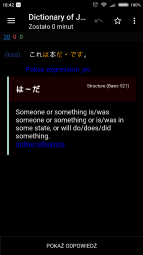
Did you read the OP?
The DJT link has a kana tool that is very simple and easy to use. I don't think you should use Anki for it.
File: 1531369898568.jpg (84.73 KB, 673x768, 673:768, 4960c6f4c7db66612697023d39….jpg) ImgOps iqdb
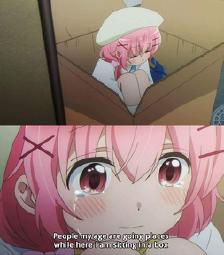
>What use do you expect to give to the japanese language once you become proficient?
>are you serious about this?
Japanese language has helped me with my shitty life and my anxiety and depression issues.
It helped me realize I'm not entirely useless but in the end I only used it to fuel my escapist tendencies further. Life still sucks.
File: 1531396066207.jpg (524.41 KB, 1280x720, 16:9, Hanayamata - Ep04 (BD 720p….jpg) ImgOps iqdb

Back in the day I used to dream about going to and eventually settling in Japan. But then I realized I'd be severely disappointed if I came to face the actual reality of it all. Japan is not particularly a paradise even for Japs themselves, to say nothing of some random socially awkward obsessed gaijin with no meaningful marketable skills (except the knowledge of a couple euro languages but it's not like I'm fit to be or even would be wanted as a teacher or an interpreter lol).
So, even suppose I did manage to go and stay there, living in a commieblock in a low-budget foreigner-filled district on the outskirts of Tokyo or Osaka would be the ceiling as far as options for someone like me go.
So I better just keep in touch with the idealized version of Japan by means of their media rather than face the ugly reality behind it thus spoiling one of the last things in life I'm able find joy in.
I don't think I ever thought of it as a useful skill.
Mostly I was just bored. In a couple years I'll be able to tab out while watching anime and not miss anything, I guess. That's useful.
File: 1531467482849.jpg (299.4 KB, 1000x865, 200:173, 1513201031740.jpg) ImgOps iqdb

It helped me escape from the hole of mindless internet browsing and shitty online multiplayer gaming. It has also made me more studious in general and rekindled my interest in literature (both Japanese and English). I still suffer from depression and dread of wageslavery, but overall I think I'm in a better place than I was several years ago.
Outside of the usual media, I really only plan on using it to browse Japanese internet communities and blogs, which generally seem more laid back and less obnoxious than English imageboards. I don't think I'd ever want to live in Japan because of the work culture and xenophobia. I would like to take a trip there someday just to drive through the countryside, though. The videos of people driving through the mountains there are beautiful.
Honestly, 90% of the reason I started learning Japanese is because I saw someone on a forum with a signature that had some Japanese text, and thought it was cool. It's a very shallow reason, I didn't even know if that person spoke Japanese or not in the first place, and I stopped visiting non-anonymous forums years ago, yet my habit of studying Japanese persisted. For this reason, I can more or less assert that I'm serious about it. I don't think I'll quit any time soon as it has become a part of my daily life. However, I don't really have any planned use for it outside of consuming media. It's quite sad, as I already feel like I'm forgetting English and another language I know because I barely use either. Although, maybe I won't forget Japanese as easily as long as my interest in anime doesn't fade.
This is really similar to why I learned.
I would just waste endless hours aimlessly browsing the Internet, which was just wasted time in the end. Especially during my NEET periods. I decided to do something useful and productive with my time so I could look back and be glad I did it.
>going to and eventually settling in Japan. But then I realized I'd be severely disappointed if I came to face the actual reality of it all.
How exactly did you realise that?
I traveled abroad by plane once and for the entire stay there I felt like reaching a new level in a videogame. It was kinda bizarre. There were people, food, cars and houses just like at home but everything was different. It felt like being in a different dimension, no matter what I did there it wouldn't affect how my homeworld looks and feels. Maybe like being on a movie set. Even the air at the airport gave off that coastal warmth and sea smell. It was unforgettable.
Later (or earlier, I can't tell)I did a 1500km camping trip with parents to Yugoslavia and it wasn't as spectacular as my flight(wizair ironically) to uk.
File: 1532515215802.png (136.86 KB, 300x200, 3:2, 1448055799493.png) ImgOps iqdb
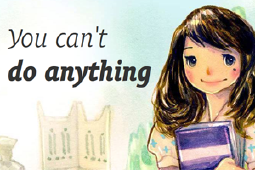
JLPT's only hardness is the excessive amount of useless grammar. If you can't memorize them, too bad, but I don't see why anyone would even bother with JLPT if you aren't getting job that needs Japanese.
>I have a terrible record of motivation
It takes like 4 years to get "fluent". Whatever that means, since it is mostly used as a buzzword in language learning sites.
nihongo of strong of suru.
I think it says something like diligence of studying of japanese language. the suru here means to do, right?
No anon, it says Japanese study thread. It's not する, it's スレ(すれ) which means thread.
Didn't want to start another thread for this but its kinda off-topic, sorry.
Do you guys think Japanese is the right chink language to be learning?
My goals in life are independently living in a small flat and comfortably consuming and creating media.
Now I read a lot of manga and watch anime of course like most people here, but I don't think it's likely I'd ever move to Japan.
There is a lot of manga/manhwa whatever you call it and a lot more chinese anime coming out recently, I wonder if japanese is the right language to be learning for media consumption in the future.
>Reason why I'd like to be able to read and understand Japanese: Media as mentioned above, and there is a lot of stuff on dlsite that I can't find translated. Stuff like teaching feeling too and many audio only things are nice but for example teaching feeling got updated so even if I bought it I don't have translation patch for that version.
>Reasons to go with Chinese: people say its easier, there is a lot of content being made in it, games too and if by some miracle I'd need it for business it would likely be more useful than Japanese. Also they got a ton of people so future media is likely to go their way. Not to mention they color stuff, but some of it is Korean I think.
>Korean: As I said above, some colored manhwa stuff is Korean and with Kim Jong-un spreading his cheeks I might get a slave to do all my chores there for dirt cheap.
Also the social stigma, although it doesn't matter in a day-to-day setting, but in the off-chance I'd have to speak using these languages I'd be likely too uncomfortable to do so.
What do you guys suggest? I already know German and self-taught English, my mother tongue is neither, I really like how they use characters instead of uniform letters and gives me a good excuse to use my fountain pen to make it pretty.
>>27807
China and korea governments censors a lot of media and that may effect the quality of whats made negatively. I'm not a big fan of chinese and korean media because I can count on my fingers how many manga's I like from them, while most of the stuff I see from those countries is bad. Japan makes the most media and it will probably continue making the most and the best for a while, I think. I'm not sure if this is true, but I've heard that if you know japanese then its easier to pick up chinese since they both use the same kanji.
All of the manwa I read also have very boring art styles and the skill seems very underdeveloped compared to many manga artists I see, probably because they spend so much time coloring everything. And I've heard a single company controls all the manwha, I forgot the name but theyre one of the big reasons everything there gets censored.
Do you want to move to these countries? I don't know anything about korea, but from what I've seen on youtube china is a place where you have no freedom because the govermnent has cameras everywhere and blocks everything on the internet. It has a lot of good food though and the rents probably cheaper. In japan I've heard its illegal to steal copies of media online, and its also expensive to live if you're in the city. It might be easier to hire an assistant to help you draw your manga though since there are so many people there interested in manga.
Also, what content is being made in china? Besides a few porn comics from there and an anime, I haven't seen much from there. Can you share a link to anything good there?
If you learn Japanese your brain will get accustomed to memorizing characters, so once you're done with it it'll be easier to start learning written Chinese (and you don't need spoken Chinese at all).
>Reasons to go with Chinese: people say its easier
Chinese is harder. It has tones and hard grammar compared to the relatively easy grammar Japanese has. Also you need to remember more characters because Japanese has kana which cuts down on the number you need to learn. The main reason people say Japanese is harder is because it has three alphabets but kana is very easy and actually makes the language easier to read.
>there is a lot of content being made in it
>they got a ton of people so future media is likely to go their way
Government censorship means that most of their content isn't very good. You'd be surprised how much this affects the quality of a country's media and though it is true the quantity of their media will overtake Japan, the quality is highly likely to remain low.
>if by some miracle I'd need it for business it would likely be more useful than Japanese.
This is true.
But in the end you should learn the language you feel you would have the most motivation to learn, because it is a very time consuming activity and the failure rate of becoming good is very high. A good quote I heard somewhere is you should only learn a language if you feel like you'd use it every day. Because if you don't there's no point in starting because it'll just be a waste of time and energy before you give up.
>hard grammar compared to the relatively easy grammar Japanese has
No. Chinese grammar is quite primitive actually.
>you need to remember more characters
Yes. However, each character in Chinese has one and only one reading (in frames of a single "dialect", of course), whereas it is not the case with character usage in Japanese.
>main reason people say Japanese is harder is because it has three alphabets
No. First, as I've said above, the usage of characters in Japanese is way more versatile due to multiple readings. Each character can have onyomi, kunyomi, nanori, and several of each, as well as many exceptions, which renders detached studying of characters (outside of their of their usage in words and phrases) nearly useless.
Second, Japanese grammar is highly synthetic, contextual and often differs quite a bit depending on the "politeness" level.
File: 1533052196790.png (3.18 MB, 1800x2400, 3:4, otokoshaft.png) ImgOps iqdb
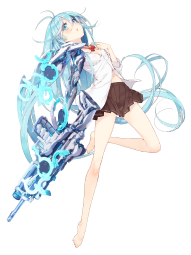
>Also, what content is being made in china?
I'm mostly interested in Chinese games, they are all extremely well animated and western ones (MMO's mostly) can't even compare. You can simply look for some on youtube. God slayer online, age of wushu 2, not sure if Lost Ark is Chinese, but you get what I'm looking for.
For "manga" I really enjoy Tales of Demons and Gods and similar ones to it, there is even a game that came out for it on mobile recently.
>Do you want to move to these countries?
I might consider moving to some rural areas, although I'm afraid of Chinese laws and being discriminated against in the future. I probably have no chance of settling there unless I work full time for a Chinese company.
Japan to me seems small, and for some reason I feel like people would judge me, I'm also afraid of natural disasters. But if I had to choose I'd likely move there instead of China, but for money making purposes (at a company) I might have an easier time with Chinese knowledge.
>>27812
>A good quote I heard somewhere is you should only learn a language if you feel like you'd use it every day.
How do you feel about the honorifics used? Could you see yourself using it in a real life situation or an online conversation? That is one of the things that troubles me, in my mother tongue we don't really basically refer to elders and peers the same way similar to English. I feel like it would be awkward, what is your experience?
>>27813
You summed up many of my worries here really well. While I'm competent at using 3 languages already, I feel like I'm not at my mental peek anymore.
So as a closing question, how is your learning (assuming you learn Japanese) coming along? Are you able to consume their media without much trouble, or do you still have major difficulties?
Thank you all for your answers so far, I really appreciate them.
>how is your learning (assuming you learn Japanese) coming along?
I'm not rushing it, it's simply a hobby for me, a "for the soul" kind of thing.
I'm done with grammar, so now it's mostly lexics for me, especially the kango(漢語) part of it, which can be a bitch to memorize.
>Are you able to consume their media without much trouble, or do you still have major difficulties?
Well, I'm not "fluent" yet. But depending on the media it varies from pretty doable to hardly.
I have already enough materiel(and money saved up for a few months worth of living there but I'm not going there unless i can communicate with locals!) to start learning but I'm laying it off because wageslaving is too exhausting and I'm too lazy to start studying.
But do take information on about how much time you will need with a tablespoon of salt, because it all depends on your learning efficiency and time used on it.
Anyone feeling up for transcribing/translating this song?
https://sakuray.bandcamp.com/track/space-of-love
0 if you are just in central Tokyo.
All of it if you are going to rural areas.
If you don't spend at least ~2 years to learn, don't even bother starting. Assuming you are native English speaker.
Yeah. Recognition and recollection are different processes. But I say don't worry about it, eventually it'll come.
Btw complex ones won't seem so complex anymore once you learn all the basic elements.
File: 1534378352870.jpg (58.86 KB, 1024x576, 16:9, [Judgment] Boku wa Tomodac….jpg) ImgOps iqdb

毎日、黒いゴミ袋と大地で歩いて、全部の見える糞をそれに集まっておきます。二つの袋をいっぱいにするには、終日が必要です。
だが、苦しい日の後で家に帰ったり、バスルームに行ったり、熱い水をつけたり。。んんん。。お風呂に僕の宝物を注ぎ出してします。
そして、僕は糞の一元的な生体に吸収された想像して、オナニーします。
ちなみに、うんこたちは考えるのができて、自身の家族や都市や感情があると思います。だから、うんこを流さないでください!いっそ、泊めたり、話したり、撫でたりして。。。
昨日は、お風呂に夢を見ました:僕は海に潜って、海が糞になっちゃった。魚が、藻草が、海月が、全部が糞製でした。空も。神も!
it's a very old pasta from russian 2ch. apparently no one has translated it into jap yet. until now, that is. i hope i did ok
As I've said one doesn't need to learn spoken Chinese. There's literally no use to it, because of the multitude of "dialects". Reading and writing is more than enough, especially for a foreigner.
I feel similarly to you in that even if I obtained fluency in Japanese, all that would happen is I'd just find a new way of fucking up my life and annoy an entirely new group of people. I recently learned the basic hiragana/katakana and looking at all the kanji and grammar ahead it feels kinda hopeless. At this point, I think I'm trying to learn Japanese (or some of it) just to avoid further brain rot/fog.
Yes, treat learning Japanese as a hobby, as something that brings joy and kills time. Whereas making some unrealistic "goals" and pushing yourself towards them will only turn it all into a chore.
That's dangerous advice. Of course you should find a way to have fun with the learning process but unless you're in for serious study expect many years of not been able to read shit. And that's not fun at all in my opinion.
No need to jump into reading novels or VNs straight away, unless one is rushing to learn the language specifically for that. Understanding speech in anime (even partially, even with stop-rewinds) and being able to read signs and karaoke and shit can be rewarding enough. Luckily there are plenty modern tools for quickly looking up and learning new words and kanji.
So, "taking it slowly" is where it's at. And a Wizard doesn't have to hurry anywhere.
You really can't get good at this language without dedicating your life to it. Studying 10 minutes a day or whatever is a fine way to kill time, just not advisable to people who want to learn Japanese.
If becoming "good" (whatever your definition of it is) means sacrificing enjoyment from the process, it's not worth it. Unless you want to make the skill marketable, that is. Which obviously isn't the case with the poster I was initially replying to.
A hobby should never become a chore. And grinding dull businessmen-oriented card selections through Anki as is advised by some people itt is a straight way of making it such. Much better and easier to learn words as one encounters them in media.
There are a lot of people who devote themselves obsessively to hobbies, whether it's learning a language, drawing, writing, playing an instrument, or juggling. It's hard work, but in comparison to all of the other ways a wizard could use their time, probably the most rewarding option. I spent a few years just relaxing, consuming content, and browsing the internet, and it really started to eat away at my mental health. I feel enormously better now that I've cut out 80% of that "relaxation" for "chores".
Anyway, it's just a matter of how someone wants to spend their time, so not really a matter of debate. Do whatever makes you happiest in the long term.
Agreed. To each their own.
That poster said he felt similarly to me, that's why I gave him advice based on my own experience.
Chinese subtitle everything because the various languages are different in spoken form (compare Mandarin's 4 tones to Cantonese's 6) but pretty much the same in written form with some differences, somewhat comparable to amateur subtitles that sometimes get the word order wrong or use an odd word but the message is clear. In theory, you can just learn the characters and their compounds (你 (you),好 (good) 你好 (hello)) and be able to read manga and watch movies. I don't know how practical that is but there are books like Remembering The Hanzi that use it. After Japanese, I might try it, then I'll have a decent amount of kanji and some reference
I wouldn't use it. Its slow at loading and its not much effort to just go to the websites where the content from. It looks pretty though.
Why does it still not contain any VNs? Considering its what people are mostly recommended to read because of text hooking?
Nevermind, I found the right one in the OP.
There was a blog that posted Anki decks made through Subs2SRS from different variety shows, movies and anime. The posts were removed but reuploaded to mediafire. Here's the Anki decks.
https://www.mediafire.com/folder/p17g5uk4phb41/User_Uploaded_Anki_Decks
You probably know this but just in case you don't, you can get those books for free on piratebay. If you want a physical version you can print it. Btw, 45 bucks is for the first book alone, you'll spend way more than that for the full set.
>Is this a better approach?
Hey man. I'm assuming you just began your studies so here's some tips to help you out.
First thing is; it's going to take you a long time to learn Japanese. It really won't matter in the long run if you used Tae Kim or Genki to start grasping grammar. The best tool is the one that will keep you at it. Really. Whichever tool that you feel like using, go for it. As long as you're studying every single day, you're good. If you can do only 20 minutes of Tae Kim but you can go on for a hour with Genki, go for Genki. The longer the exposure the better.
>Should I just start reading a primary school book
Sure, try that too. It's probably going to be too hard for you at this point, but check it out regardless.
One excelent tool I think you should give it a chance is Anki. You didn't mention it so I'm throwing it out there. There's a reason so many people use it. It's a VERY effective tool to memorization and they have grammar decks for it as well. You can find all the info at the OP.
Another important thing is to actually write the Kanji instead of just looking at them. Believe me, for a good while there it will look like that just staring at them is good enough but once you reach like 500 or so the thing really starts to get nasty. Many Kanji are similar to each other and muscle memory will help you A LOT with it. I never used wanikani but if they have the stroke order in there you can use it to start writing them down.
I think that's all you need to know really. Whatever tool that keeps you going is the best one. Make a schedule and keep at it. If you really want to check native material at this point, I think manga is better than primary school books. Get Yotsuba, it's the simplest one you'll find and it's a very amusing read imo.
Don't get obsessed with "best methods" I see so many people doing that. Remember, the only best method is daily and diligent study. Be it Anki or didactic books or whatever. I'm almost 3 years in now and what did for me on the beginning was Anki and Manga. Many people go for VNs too but I really don't care for the media. Anyway, best of luck to you.
I've read most of tae kims except the advanced section because I wasn't retaining most from the essential grammar and the one after that, but I read up to the beginning of advanced grammar because I thought even reading it once would help me somewhat recognize it. I looked at genki and it looks too easy for me and I don't like the explanations.
Now I'm seeing imabi and this resource looks great. I'm going to stick with imabi for now on until I get to beginners 2. wanikani is enough for now. Once I've finished wanikani and I need more vocab, I'll get some anki or memorize by reading novels, but wanikani has been great for learning kanji for me so far.
I don't want to write the kanji. I'm doing fine memorizing the radicals from them through wanikani and menomics help a bit too. I've already memorized about 500 and haven't wrote down one kanji all because of wanikani.
無駄だ
A huge chunk (in fact, the majority, if I'm not mistaken) of Japanese nouns are so-called kango(漢語). Basically Chinese-type kanji-based words that are way easier to memorize (and recognize) if you know the kanji and their "on"-readings. Without knowing kanji you'll have to memorize thousands of similar-sounding 2-3 syllable words with nothing to hold base on, and that's hardly possible imho.
And although you can indeed learn many verbs, adjectives, simple nouns, and even basic grammar without learning kanji, that won't be enough for watching anime without subs, sadly. Otherwise I probably wouldn't bother with kanji myself.
Imo, the best way to do it would be to listen/watch japanese media 24/7 for about 2 years. Use the jisho dictionary to look up words as they start sticking out in your immersion. The first 6 months will be the hardest, but soon you'll be picking out words in every sentence and it will stop feeling like an impossible task. Just enjoy native content and chill. About 10,000 hours of listening/watching and you'll be fluent. Do the math and plan it out if you're really serious about learning. Get a dedicated 'immersion pod' and fill it with native media to listen to. Good Luck.
>>28341
It's definitely possible anon, because that's how japanese kids learn the language. Simulate their enviroment and you'll get the same result.
Unfortunately, that's not entirely true. Intense media exposure does help develop a "feel" for language, an intuition of sorts, which makes actual studying much easier (i.e. the proper grammar forms just feel natural, etc), but it does not substitute said studying in itself to say nothing of becoming fluent.
>>28347
>Simulate their environment
Hardly possible unless you surround yourself with native speakers.
This playlist should explain it decently and better than any shitty attempt I could makehttps://www.youtube.com/playlist?list=PLPAcvor6xsO0rbxjBcpyOf9KdeOqN2cTc
A pure listening approach would take longer, but in theory it should be possible to progress at a steady pace if you immerse well - As Stephen Krashen has comprehensively proven, a conscious knowledge of grammar hardly helps at all in learning a language
Only trying to share a perspective that I've found helpful btw - take from it what you want
Different anon. All of the Japanese learners on that playlist studied grammar, used Anki extensively, and learned to read. They didn't just listen to 10K hours of Japanese. Also, a lot of AJATTers (and Japanese learners in general) exaggerate their abilities. I would take the claims of BritVsJapan in particular – really, anyone who studied for less than four years – with a huge grain of salt.
I basically agree with what you said. I'm sure it is possible to learn a language through listening alone, like a child. It would just take so long for Japanese that almost anyone would either give up or start studying in a more efficient manner (i.e. with supplementary vocab/grammar study).
>Japanese learners in general exaggerate their abilities. I would take the claims of […] anyone who studied for less than four years – with a huge grain of salt.
Yes I completely agree with you and I've seen it myself many times. Not just with Japanese but other languages too. I guess you must go through the sweat and tears yourself to realize what is bullshit and what is not and the vast majority of people on Jp learning threads are people who have just begun or is not taking it all that seriously to begin with.
I particularly even avoid to respond to such things because if the guy on the other side is commited enough to convince anyone of his position the whole thread is taken hostage to a discussion that really is not helpful and in the end, mostly redundant.
AJATT fag here. I agree too. Beyond sharing a few links to explain my view, I cba to try and convince anyone. I posted to give my opinion on the best method for someone attempting to learn solely by listening, or with the intention of consuming no written media.
When you're doing AJATT you're supposed to do kanji and sentence flashcards as well, if you dodn't get that you clearly misinterpreted it
File: 1540710961860.png (143.45 KB, 1366x768, 683:384, Screenshot from 2018-10-28….png) ImgOps iqdb
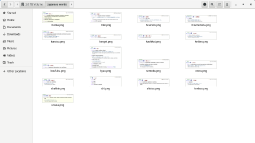
File: 1540857973072.png (182.35 KB, 1366x768, 683:384, Screenshot from 2018-10-29….png) ImgOps iqdb
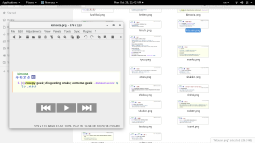
definitions of words i took screenshots of.
i look at the words and their definitions as if they are flash cards
I'm hoping it's his weird way of memorizing those really, really pesky leach cards. Having a mining folder with thousands of screenshots is pretty counter-productive.
File: 1540972309919.png (86.41 KB, 1366x768, 683:384, Screenshot from 2018-10-31….png) ImgOps iqdb
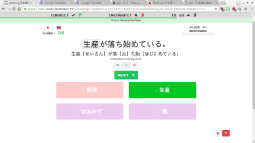
anki sucks
it takes too long to make a card and it takes too long to sift out the cards you already know from a pre-made deck
my way is like anki except it's words you want to learn instead of just random words from a deck that may or may not know
i get words from clozemaster. if i don't know a word from a sentence i add it to my folder
you're spending most of your time going through cards you already know.
File: 1540972995345.webm (271.57 KB, 1366x768, 683:384, Screencast from 10-31-201….webm) ImgOps iqdb
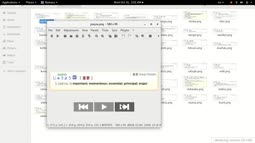
i fail to see how this is not better than anki
>>28707
I just sat here for a whole 30 minutes pondering if I should respond to you anon. You seem like the type of guy who have to learn through your own mistakes and there's nothing wrong with that. But just on the off chance you'll listen to someone who's close to 3 years into learning this language and made every possible mistake there was to make, I decided to respond.
Your method is about a million times worse than Anki. It seems OK now because you have like a dozen words to grind. How about when you have a 1k of these screenshots? How about 5k? How about when you reach 10k words? How are you going to effectively run through 10k screenshots, when half of them you already know? Are you going to subdivide into other folders with words you have a good grasp for and the new ones are going to another folder? Then once when you memorize those you pick and put them back on the memorized folder and if you forget them which happens often, you bring them back to the main folder? This is going to be such a HUGE clusterfuck you have no idea what you're getting yourself into.
You think you're wasting your time taking 10 seconds to make a Anki card? Wait until you come to the point you'll have to organize your clusterfuck screenshot collection. Now let's talk about the things you said.
>>28705
>it takes too long to sift out the cards you already know from a pre-made deck
It takes like a half a second to hit easy. It takes 3 easy hits to make that card go to the bottom of the deck for 6 months. How about sifting through your own screenshots? Do you have a system to jump those that you memorized? You don't. Once that folder reach enough screenshots you'll be completely lost, angry and you'll have to start a proper Anki grind deck from zero. Hundreds of hours wasted. A pre-made deck has tons of common words you need to memorize anyway. Don't believe you're above pre-made decks because sure as hell you're not. In fact you're very far from not needing them just because you know all the obvious English words in Katakana. Besides, those decks have actual sentences with the words in them, which helps memorization A LOT. Not only that but you pick up grammar and the way those words are used within the language, instead of just translations.
In other words, you don't know how Anki works. It will filter all those words for you, it will bring the words you don't know and the ones you have difficulty with to the front of your deck. It's called spaced memorization and there is a reason so many people use it. It works. Your method won't work nearly as well and you'll have to abandon it anyway once it gets too big to handle.
>my way is like anki except
Not, it's definitely not like Anki. Your folder won't organize itself according to your progress. It won't ignore words you already know. It won't know words you forget often. It will just sit there in alphabetical order. It's worse in every single aspect you look at.
>it's words you want to learn instead of just random words
No, it's not random words, it's the most common words of the Japanese language. You'll need those 10k most common words would you think you need them now or not. Again, it's not random, it's words you'll see every time, pretty much everywhere. You're not above the Core decks. Ignoring them now will just make the process take even longer. It's funny too because every single word on your grind folder is included in a much more effective manner on the Core decks. Don't try to reinvent the wheel here. If you think the Core is too easy with too many easy words for you, simply increase number of new words. If you think you're going to familiar words too often, reduce the number of reviews. You can do all that. Take your time to learn the tool.
I don't know what else can I tell you other than be absolutely asured this method you came up with is going to come back to bite you in the ass and it's a HUGE WASTE OF TIME compared to using Anki. It's nearly as uneffective and clunky as writting down words on a piece of paper. Don't take this as an attack on you. It's not, I'm truly, truly, trying to help you out. Do yourself a favor and take my post seriously. Stop adding screenshots to that folder, do the Core deck or at least learn how to use Anki, it is worth your time, believe me. Now do me favor wiz, if you're going to try to argue how your method is better, spare yourself the time and don't respond. I'm a 100% sure it's a terrible method. I'm a 100% you only think this is a good method because you don't know how Anki works, what the Core decks are, and you just began learning Japanese, so you pretty much have no experience on how this thing progresses. If you just knew how many words you'll be remembering and forgetting constanly in the first year alone you would never consider this folder method to begin with. It's impractical as fuck. Anyway, I wish you the best whatever way you try to go.
>>28706
You just don't know how to use the thing. You can choose how many words you review and how many are new words. Just reduce the number of reviews and increase new words. It's that easy. Really take your time to learn about the tools you're using because it will help you in the long run a lot.
File: 1540999729977.gif (20.64 KB, 500x450, 10:9, 1538590422076.gif) ImgOps iqdb
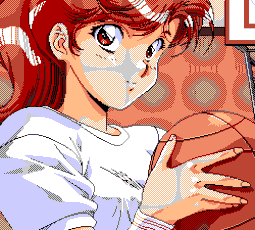
>>28707
This guy >>28709 hit most points but I'd also like to point out that you can just set up a mined deck and use Rikaisama with Anki to make new cards very easily. It takes a few seconds so it doesn't interrupt the flow of reading/listening too much.
As for your method, besides being extremely impractical for large amounts of vocab it seems like a very passive way to study. I'm assuming you're just glancing through the definitions of your screenshots. That's the type of shit you do to cram before a test, not to become fluent in a language. And your screenshots are even including the readings of everything for you, in both hiragana and romaji, so you're not even really learning to read kanji effectively.
>>28706
>anki is good if you are a beginner, but if you're beyond beginner, it's a waste of time.
>you're spending most of your time going through cards you already know.
If you're the same guy as above then you're using google translate and looking up the definition of 生産, so I'd say you're still a beginner.
Either way that's completely false, though. I've been using Anki and mining words for several years and have advanced from reading kids manga like Yotsuba to reading visual novels to reading 20th century novels in Japanese. It's an incredibly useful tool for learning and remembering vocabulary.
>you're spending most of your time going through cards you already know.
That's kind of the point of spaced repetition. You're reviewing things you know at certain intervals to reinforce them. If you really know the card you push easy each time and it just gets pushed back far enough to hardly matter. Learn to use the software.
>my way is like anki except it's words you want to learn instead of just random words from a deck that may or may not know
surely you know you can build your deck with words you want to learn. whenever you find a new word you like, whatever method you use, you just add it. i'm doing this not for japanese but i still add like 50 words every day.
File: 1541023259027.png (37.2 KB, 1366x768, 683:384, Screenshot from 2018-10-31….png) ImgOps iqdb
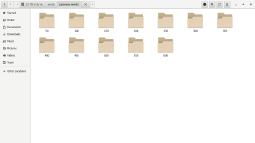
>How about when you have a 1k of these screenshots? How about 5k? How about when you reach 10k words? How are you going to effectively run through 10k screenshots, when half of them you already know?
you split them up and put 50 in each folder. if it's a folder you have a good grap of, you just skip it
is there an effective way to learn kanji?
i learn kanji as i learn words. i don't care about learning kanji by learning them one by one
https://en.wikipedia.org/wiki/Ky%C5%8Diku_kanji#First_grade_(80_kanji)
sometimes i'll go down this list to see how many i know
initially when i started learning japanese i was learning kanji. i found it too tedious
あなたの頑固さにはあきれます。どうでもいいですが君徐々理解しますだから。
>>28715
>is there an effective way to learn kanji?
Yes, you write them down, grinding about 5 to 10 a day depending on how much time you dedicate to the task and in 14 months (at the latest) you'll know all the Joyo, forever. Or you can spend years just looking at them and having to look it up every time one comes up that looks similar to another one you thought you knew but you really don't. I mean the Japanese and Chinese have been learning Kanji for some time time and it's how they do it. The thing is, in your case, you don't want to spend 12 years to see all of the 2000+, so you want to be a bit quicker than 3 a week.
>i learn kanji as i learn words.
Don't worry man, as you learn Kanji you'll be learning words.
>is there an effective way to learn kanji?
The most common ways are probably the Heisig method or just learning them as you go like you want to do.
Heisig wrote a series of books designed to help people memorize the meaning and stroke order of common kanji using mnemonic devices. The book names and a more detailed description of the method are here.
https://en.wikipedia.org/wiki/Remembering_the_Kanji_and_Remembering_the_Hanzi
I've seen a lot of people criticize it because they think learning kanji in isolation is dumb, but for me taking the time to learn the stroke order really helped me in recognizing them. Personally, I went through his first book, which teaches about 2200 characters, over the course of a month or so. I did about 50 characters a day, writing each down several times while observing the proper stroke order and using the recommended mnemonics (or making up my own). Then I'd come back several hours later and go through an Anki deck that tested both recognition and the ability to recall and write down the characters given the meaning.
I was doing the Core Deck and reading some basic stuff while doing this as well so it wasn't really in isolation like Heisig recommends, but overall I think it was a pretty effective method of studying. I also only read the first book, which teaches writing and meaning, and never bothered with the other 2, which teach the readings and additional characters, because I found that just learning vocab and reading were more effective in learning them.
>>28713
This still scales awfully. You're not going to have any reasonable way of sorting this shit other than by the date you added it. Everything is going to be out of order alphabetically, you have no way to search things by Japanese characters because you're writing everything in romaji, and all these images are probably going to take up more space than the text for the formatting and text of a card in Anki would. I don't know what your beef with Anki is but I'd recommend getting over it if you're serious about learning the language, or at least finding an alternative program or website that will keep track of your flashcards for you.
Remembering The Kanji by James Heisig. The SGJL courses for it are done nicely. I've easily done 1000 kanji in 2 months with it and I see them all the time. Once you know the meaning of the kanji, it makes it easier to remember words with it and to be able to accurately guess the meaning of sentences based on the kanji.
File: 1541040230581.png (133.8 KB, 1366x768, 683:384, Screenshot from 2018-10-31….png) ImgOps iqdb
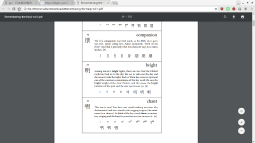
it doesn't give you the onyomi reading and kunyomi reading. it just tells you what the kanji means in english
if i wanted to learn kanji like this i would just use memrise
you will never learn kanji reading these books
Here's the point of the book: Learn the meanings of the kanji then learning words that use the kanji will be easier. You don't need to know the readings to understand kanji. Learning the readings is pretty useless in isolation since it gives no context and the readings change for words, it's usually not just a simple 'learn 2 readings and you know everything'. Not knowing the kanji or the reading is 2 things to learn at once instead of just one, making it more difficult. With RTK you can see a text and understand it even if you don't know the pronunciation, this happens a lot when I watch a Japanese youtube video. They'll say something and have the sentence in big flashy text with the kanji, I can still understand what they said based on the kanji. Enjoy grinding your readings and giving up in 2 months
>Enjoy grinding your readings and giving up in 2 months
i've been doing this for 3 years. nice try
File: 1541043094762.png (2.86 MB, 1600x1146, 800:573, average wizchan DJT user.png) ImgOps iqdb

I was going to respond seriously to this but
>>28726
>i've been doing this for 3 years. nice try
Now I'm convinced you're just fucking with us, assuming you're the same guy (which the style of your posts strongly suggests). You've been grinding for 3 years but you have less than 1000 words? You're not a beginner but you're still reviewing basic vocab like 否定, 感動, 訪問? I don't buy it.
What a weird form of trolling, man. What the hell do you gain by doing this?
>You've been grinding for 3 years but you have less than 1000 words?
naw, i know more words than that. i just don't have them saved to a folder. I already know them so i don't really have any reason to save them.
> You're not a beginner but you're still reviewing basic vocab like 否定, 感動, 訪問
i have read both genki one and two and have done hours of anki and memrise, and don't recall ever running across those words. Are they basic?
The reason so many people got dumbfounded by your posts anon is because you ask questions people would usually ask at their first couple of weeks of learning. Then there's the thing you haven't learn how to use Anki in 3 years when 30 minutes would be enough to properly set it up (and would have saved you so much time and pain). Then you say you sometimes go through the first 80 Kanji to see how many do you know? Even if you're grinding them by writting down at a slow passe, 2 weeks is enough to know all of them by heart. Most importantly, 3 years is enough to have made all the mistakes in the book and tried all the methods to know which one works for you. The fact you just got introduced to Heisig after 3 years in is kinda of astonishing. The fact that your vocab grinding consist of words like 何とか which I swear to you must be the one of the 100 most common words in Japanese.
And of course your folder method which is one of the weirdest, most ineffective ways of learning anything I seem to remember to be posted here on wizchan in a long time. All of this really should tip you off that if you intend to learn Japanese within this lifetime you should change pretty much everything you're currently doing and go through the hoops like everybody else instead of making innefective, time-wasting stuff as you go along. If you indeed have been doing this for 3 years now it's obvious you have the will to learn it but you really need bite the bullet and put your efforts on proven learning methods.
>>28729
I actually think this might be true. I've been following this thread for the longest time and we had
-guy who tried to learn Japanese using romaji alone (reading is for faggots anyways)
-guy who wanted to learn Japanese by just watching anime without any form of actual effort whatsover
-guy who would let anime running at night while he slept hoping this would make him know Japanese
-guy who tried to learn Japanese by completely ignoring Kanji
-guy who would ask if he should learn Chinese to make him learn Japanese faster (one of my favorites). Apparently he wanted a Kanji heavy text to help him grind Kanji. So heavy that it had to be Chinese.
What else, there were so many. I think it's one of the reasons I keep coming back to this thread even after the rest of wizchan went to shit is to see how far some people will detour around learning Japanese when they get frustrated with the current methods "you know, actual study and effort" and end up going way off the grid hoping to have found a shortcut or something.
He's right, though. If you just want to recognize a few characters or a few phrases in anime then go ahead and continue with any of those methods he's making fun of. But if you want to become proficient/fluent then you have to put in work.
nani and nan are found in beginner japanese books but i don't recall nantoka being in them
what japanese beginner book were you reading?
would learning japanese vocabulary by looking up a single kanji be a good idea?
tatoeba learn all the words that have the kanji 何 in them
It would be better to have them in some context or come from some context like subtitles or a manga, not just as isolated words
I agree with >>28741. You might want to check Yotsuba out, it's where a lot people begin their reading of native material and for good reason. It's easy, although it won't look easy at first, you'll pick, it's entertaining, each chapter is fairly short and can be read by itself.
Here's a torrent with all the volume published so far; https://nyaa.si/view/412238.
There's also a deck for all the vocabulary of the first few books, you can grab it here http://livingjapanese.com/pages/yotsubato_reading_pack1.html.
File: 1541177810651.png (277.83 KB, 509x509, 1:1, Screenshot from 2018-11-02….png) ImgOps iqdb
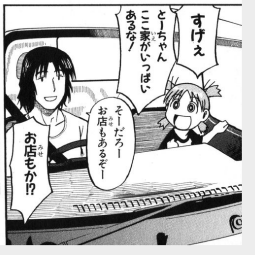
Think of そうだろ. A lot of words get shortened like that, mostly interjections, which is why it's good to be familiar with them. ろ is just a sentence ending particle like ね, わ, etc. they don't carry much meaning, it's more about emotion
Umm, what?
It's not shortened - the elongating う often gets written as ー in informal writing.
Also, ろ is not a particle - だろう is a suggestive form of だ (just like でしょう is of です).
I'm not a linguist so obviously the words are not exact. Just look at the sentence and explanation and get the idea. I just know what it means from having seen it so many times but never studied it.
The difference is in the feeling.
そうなの has an explanatory vibe (like "oh, now it's clear to me")
そうだろう is kind of confirmatory (like "oh, that's what it is, right?")
simply そう is neutral
You have to develop the feel to such things through lengthy exposure to the language (by watching Japanese media for example), as I daresay it is nearly impossible to grasp such nuances otherwise.
File: 1550217305387.png (18.66 KB, 577x147, 577:147, Screenshot from 2019-02-14….png) ImgOps iqdb

[Last 50 Posts]



